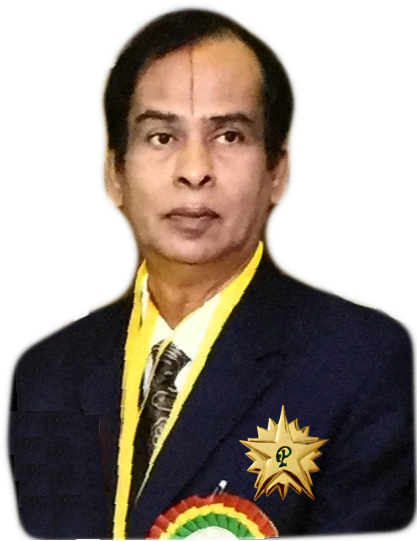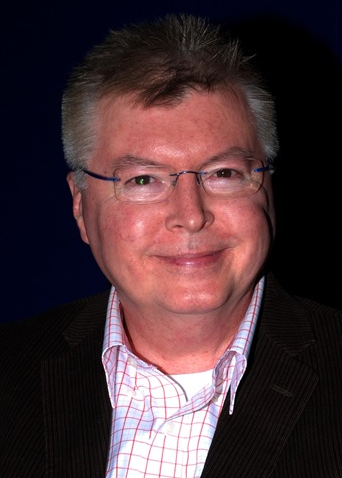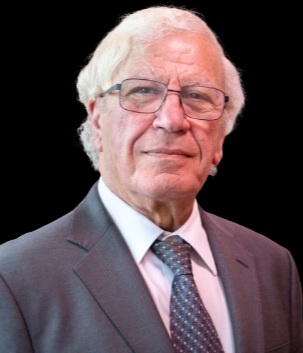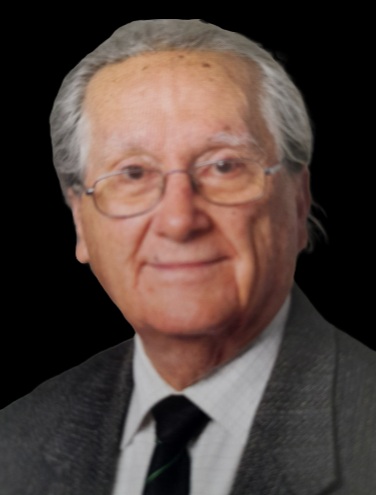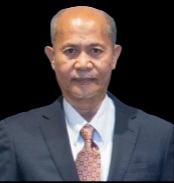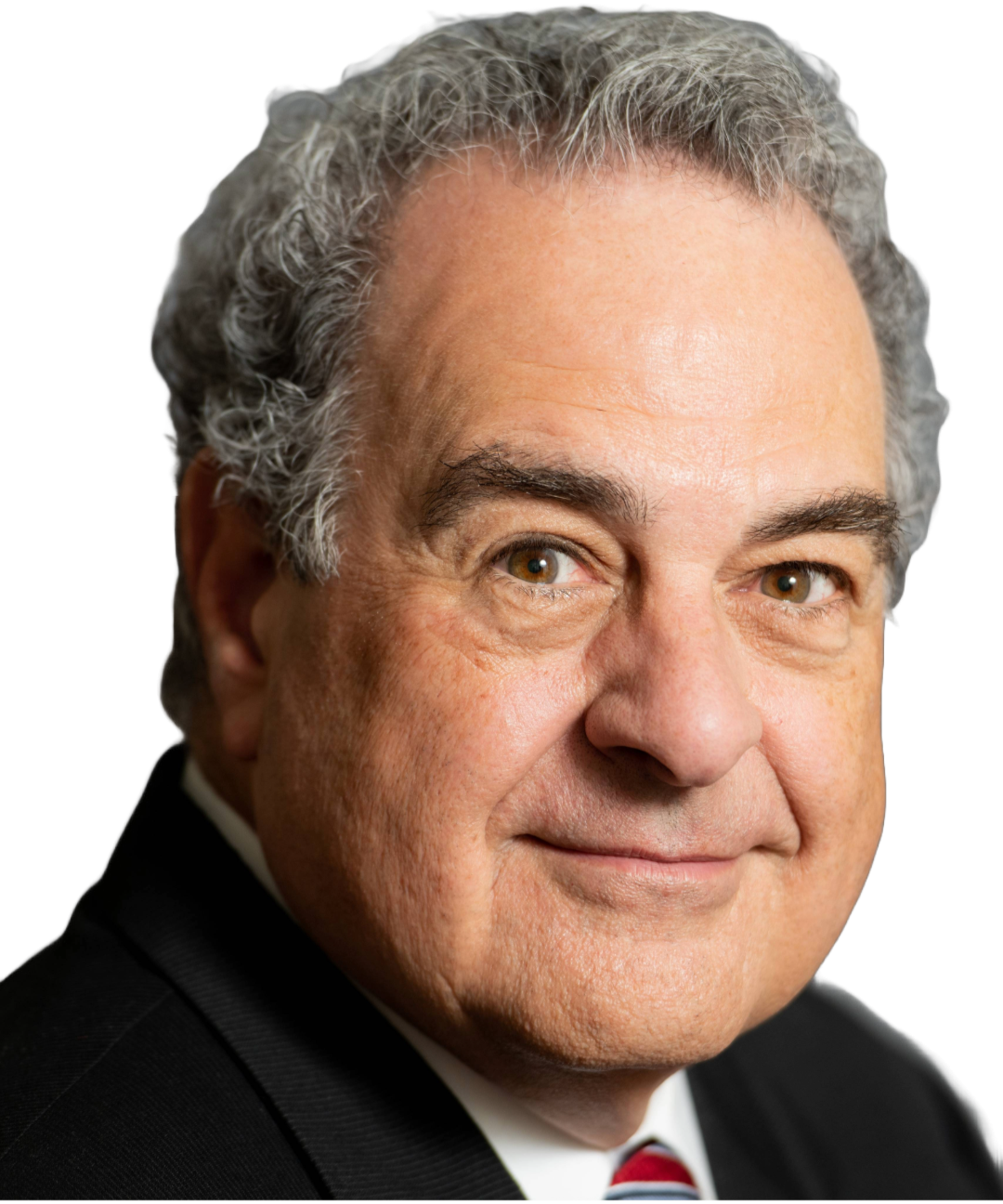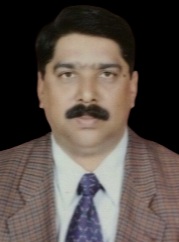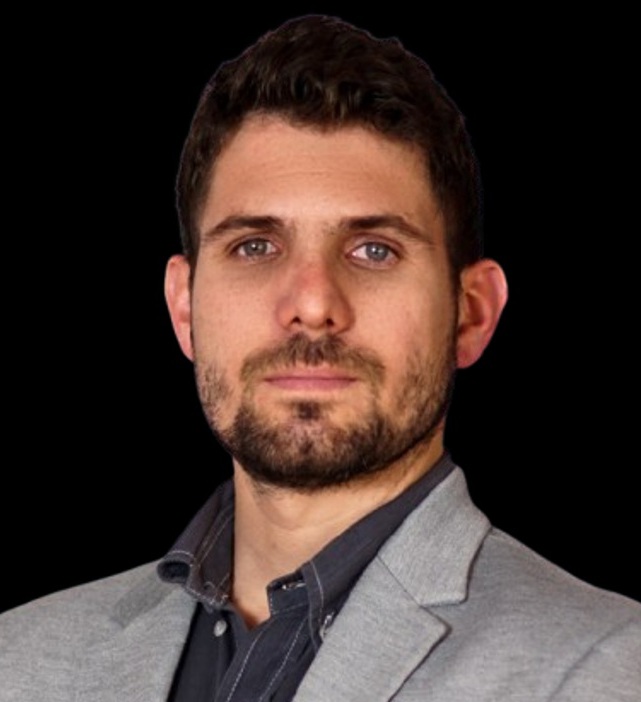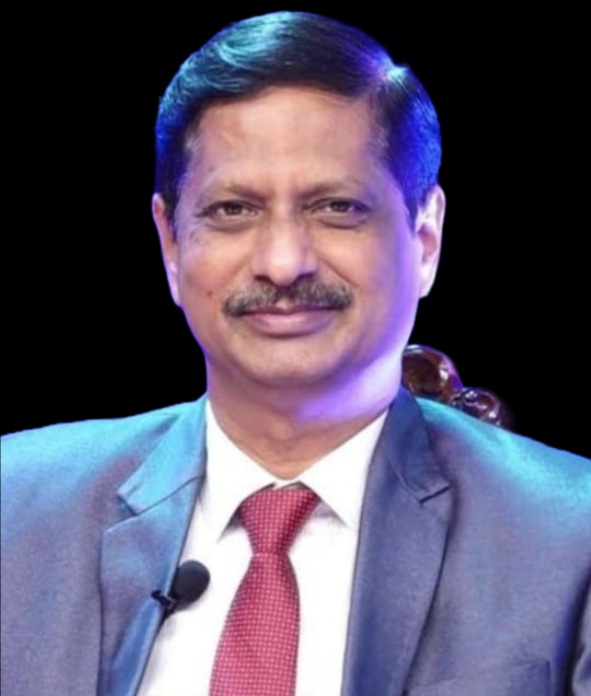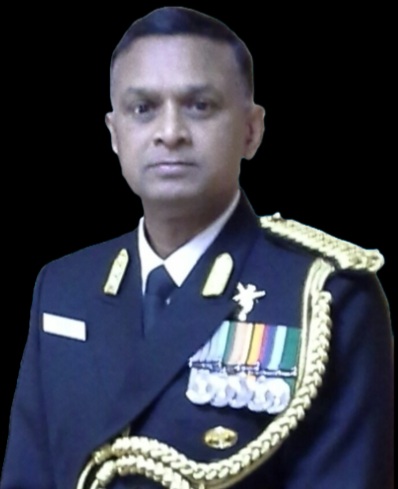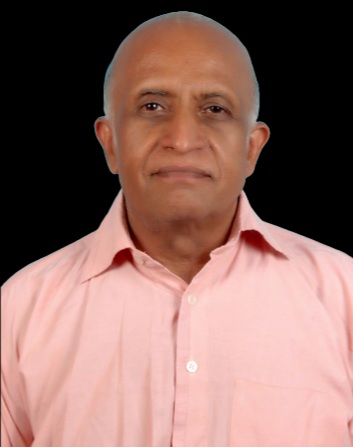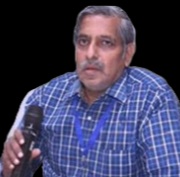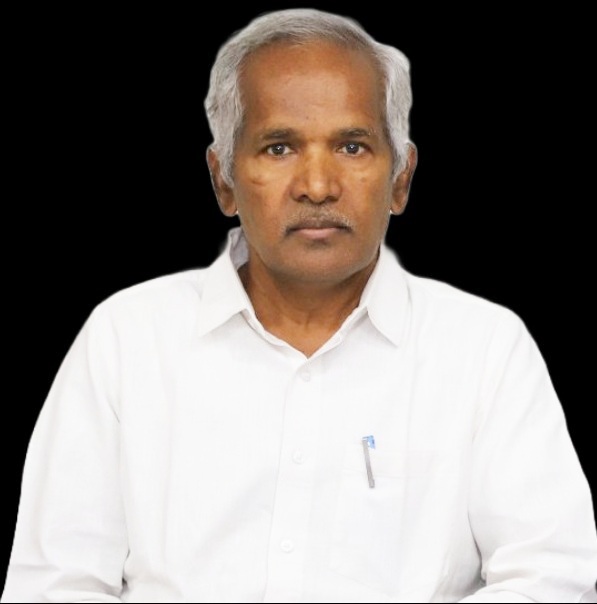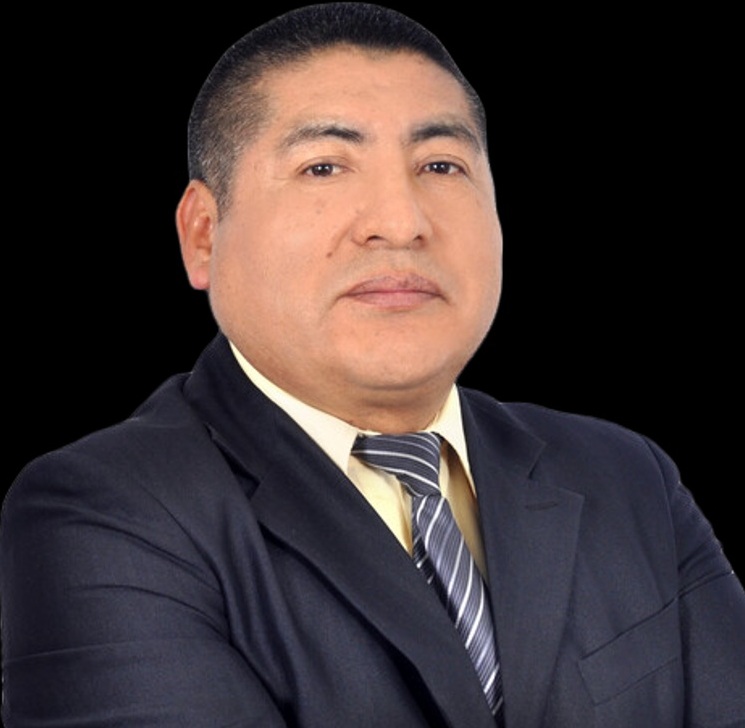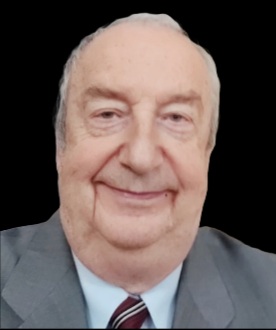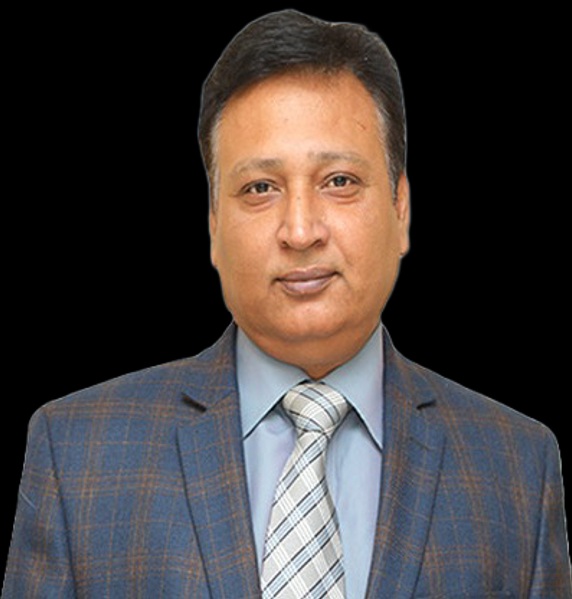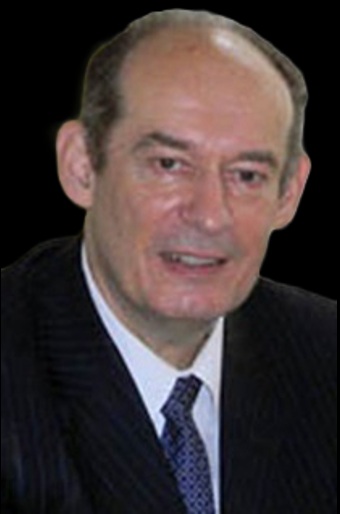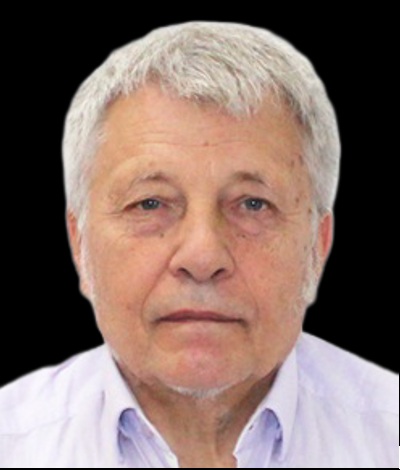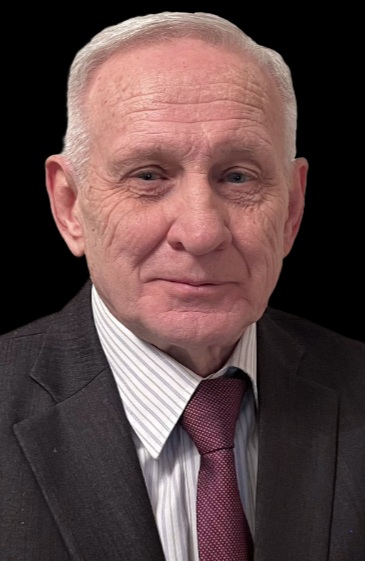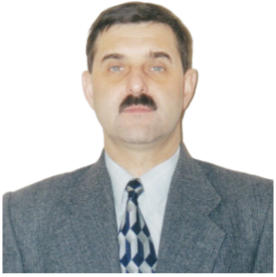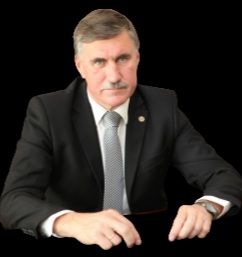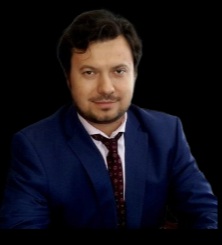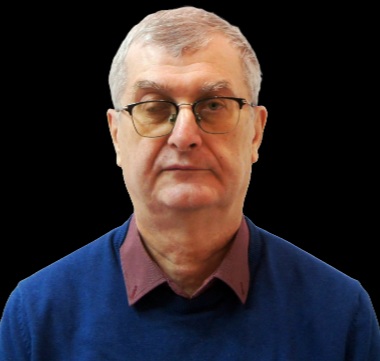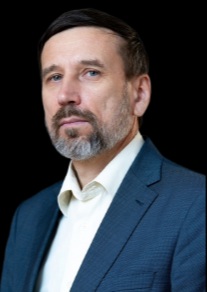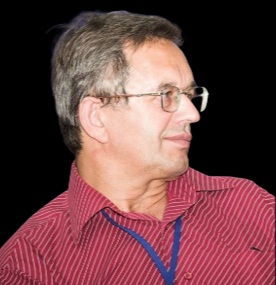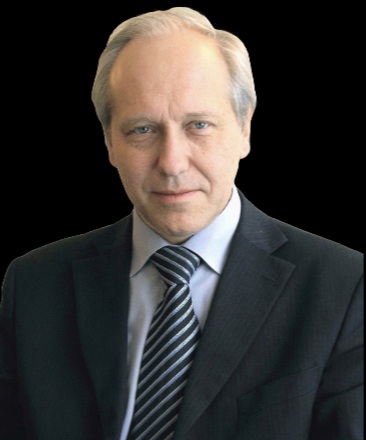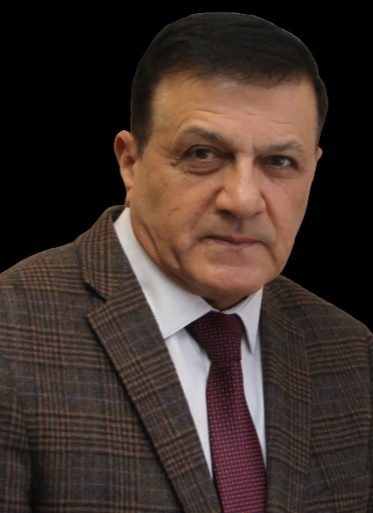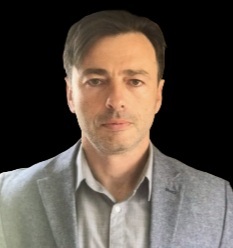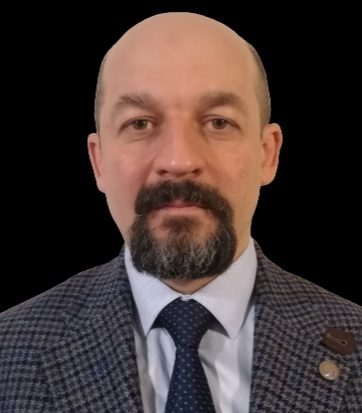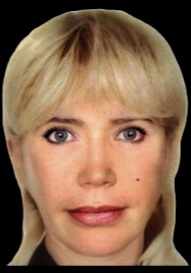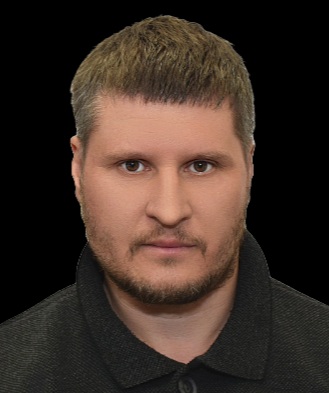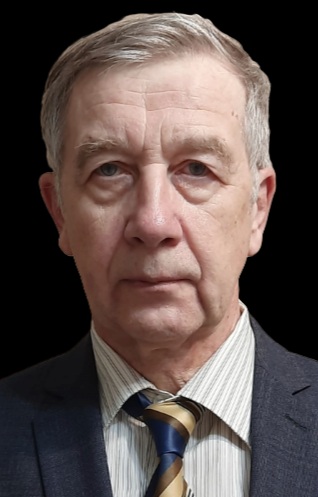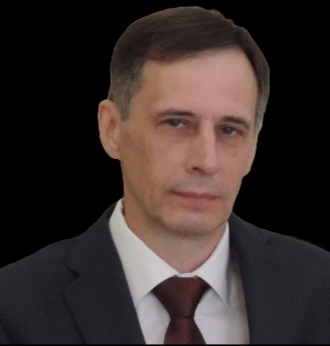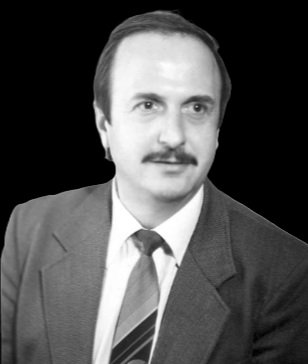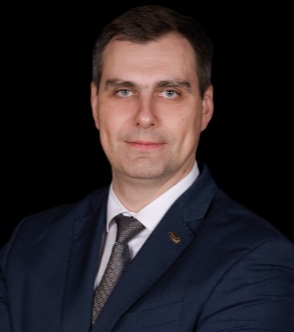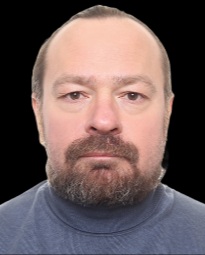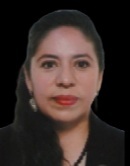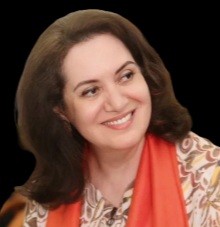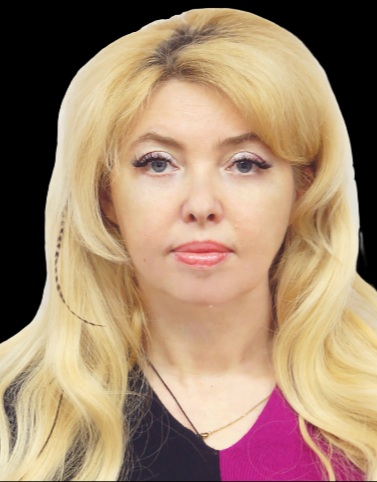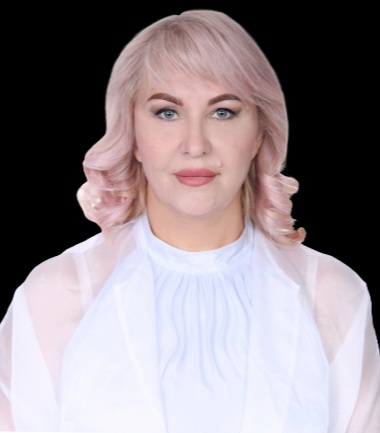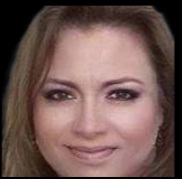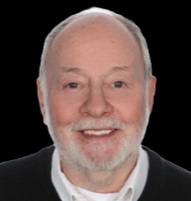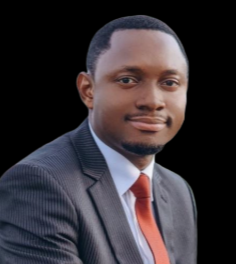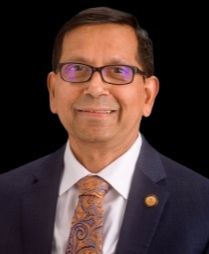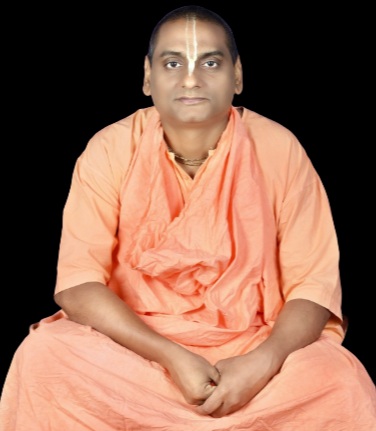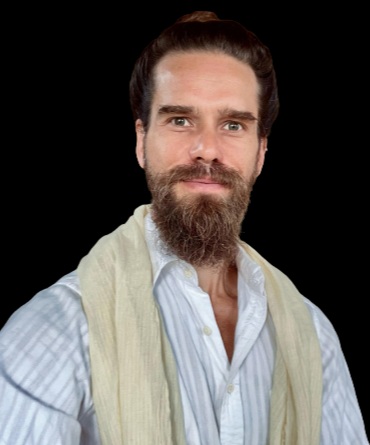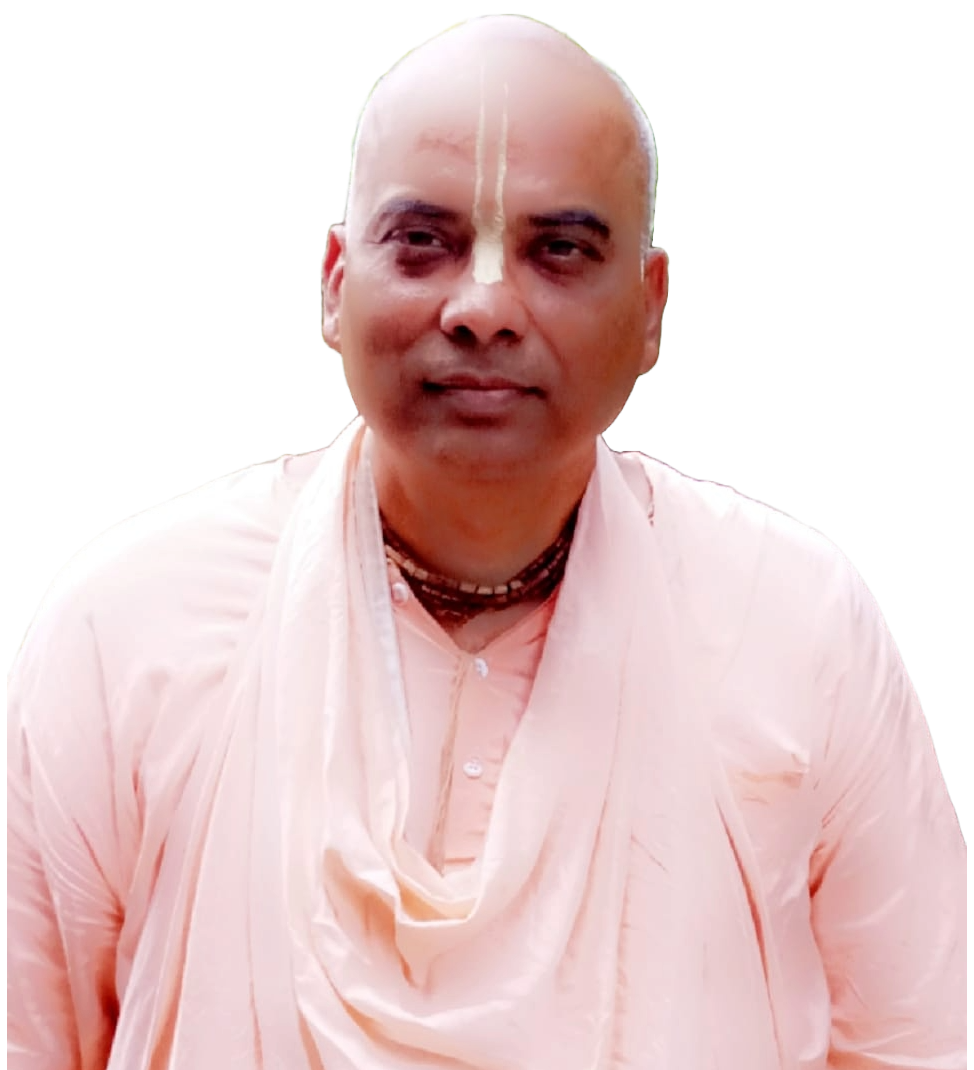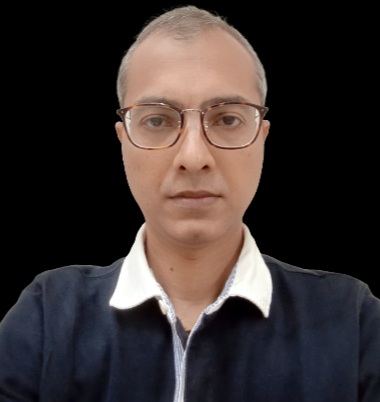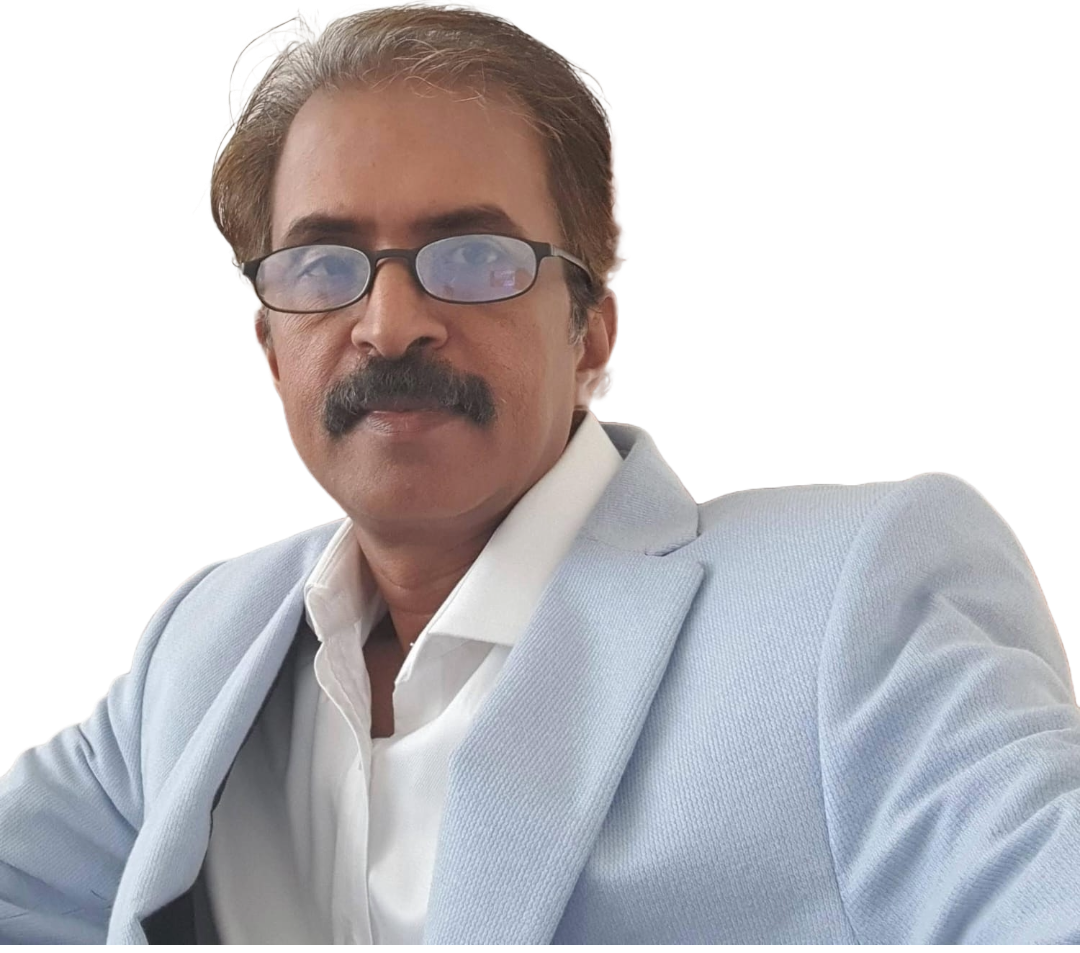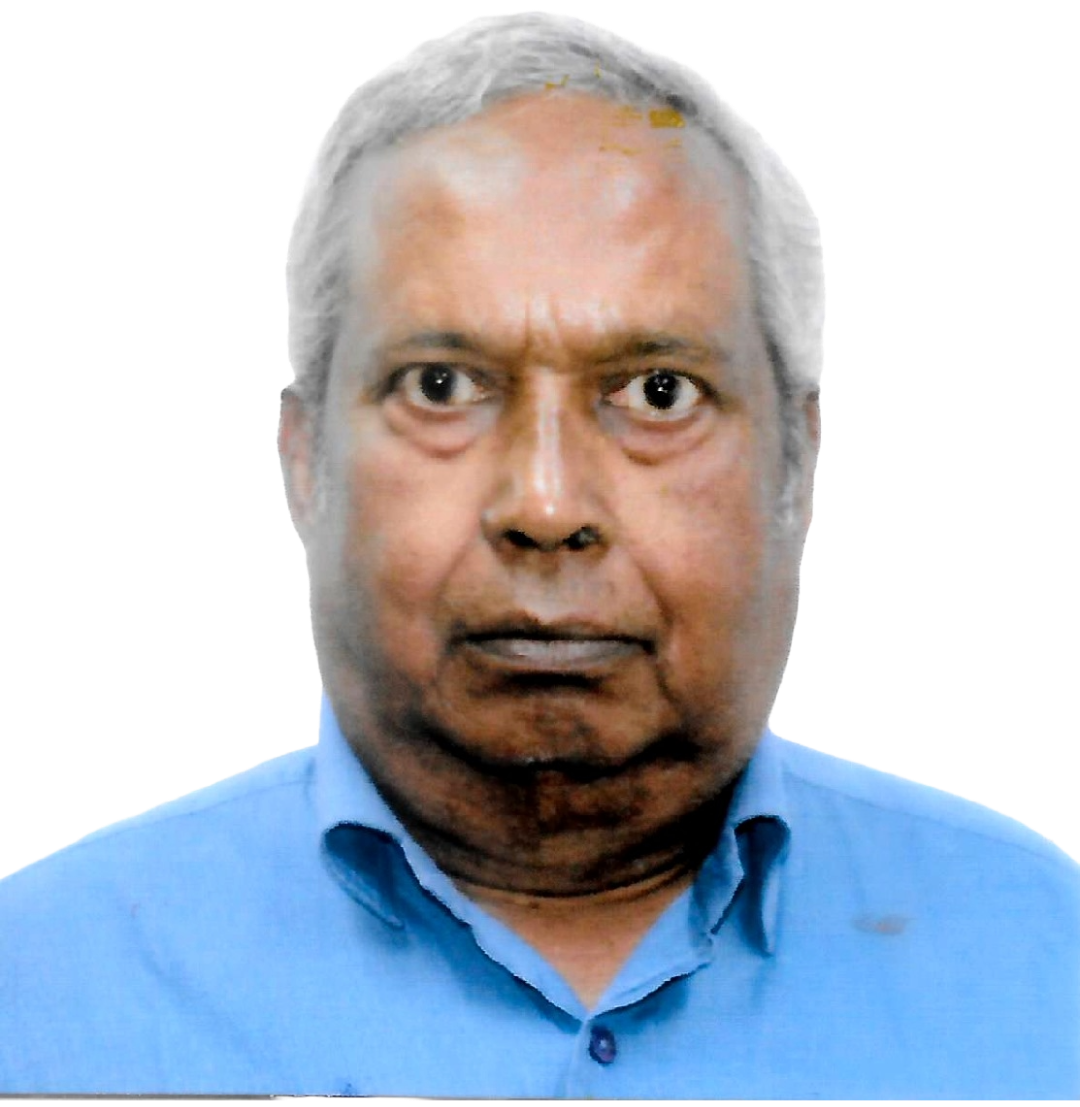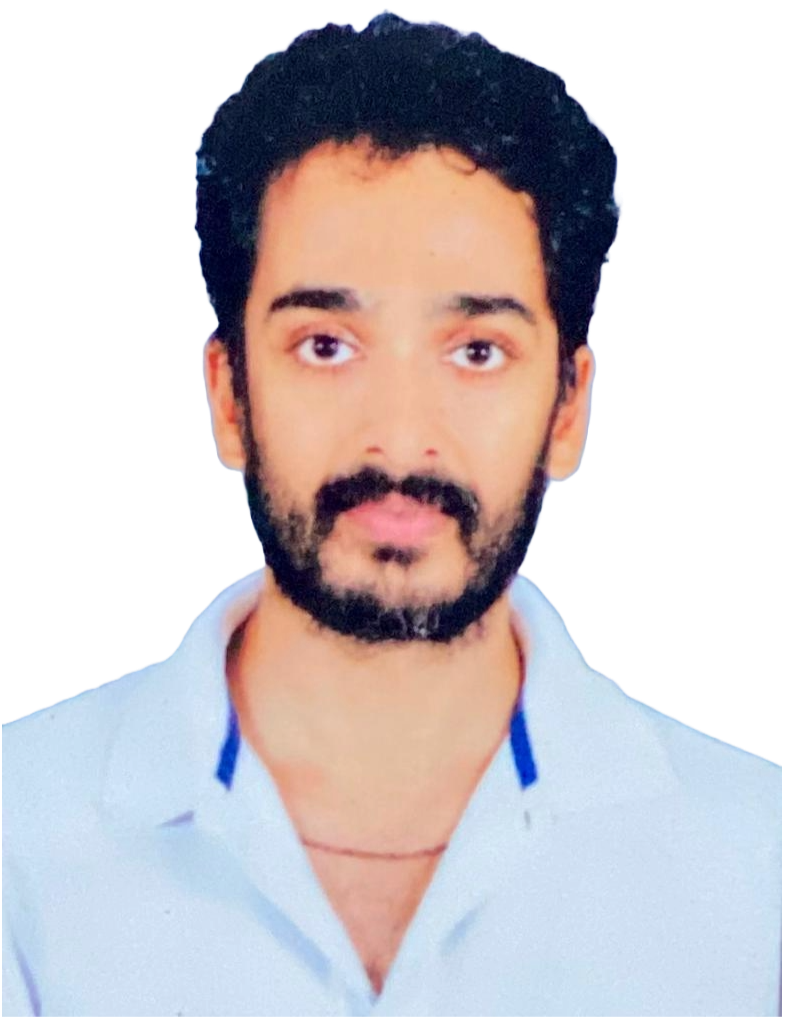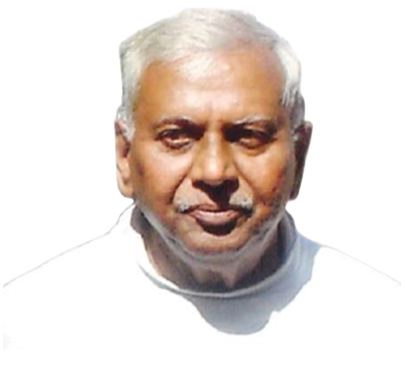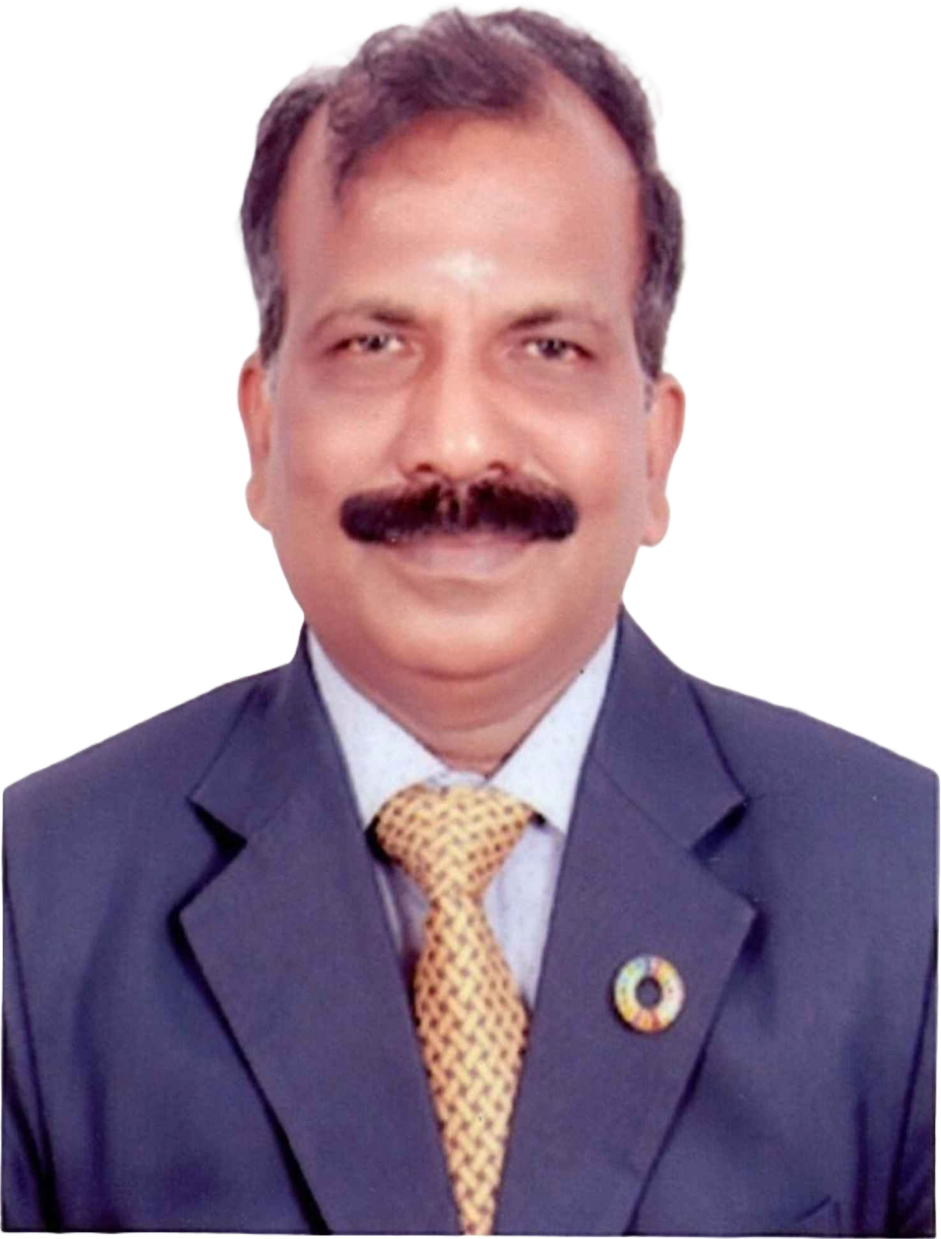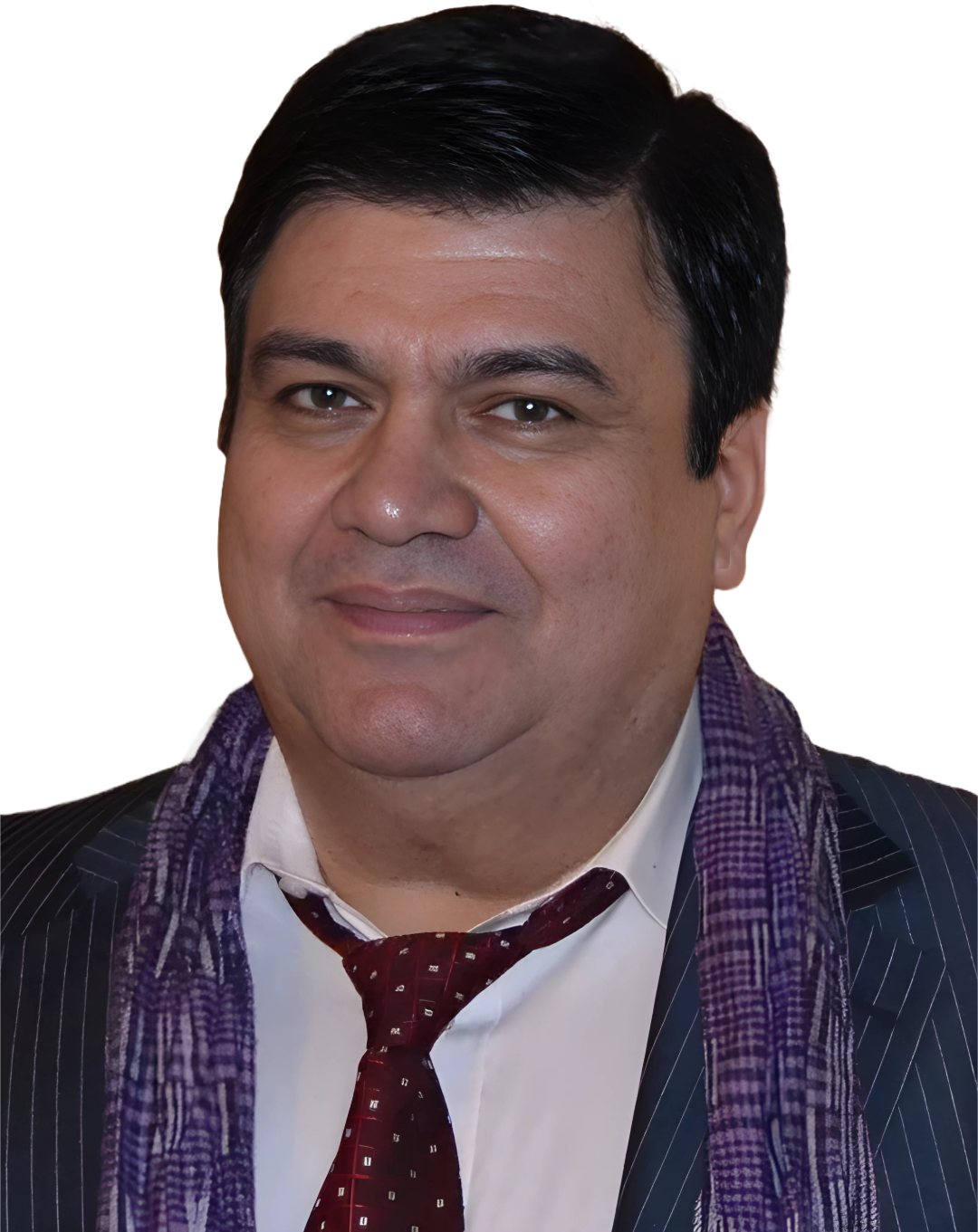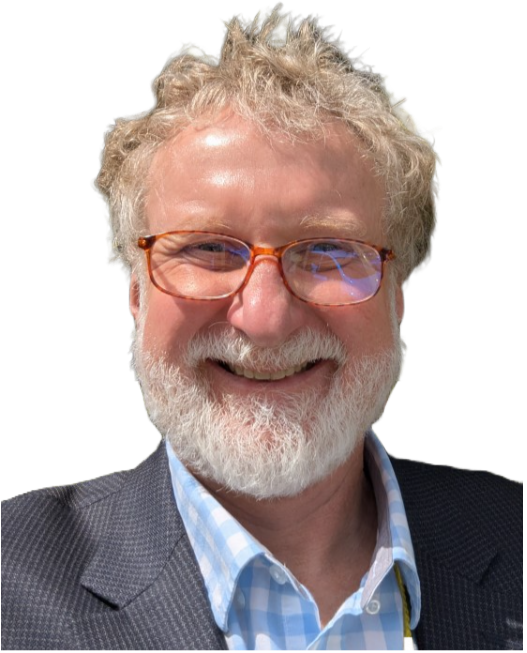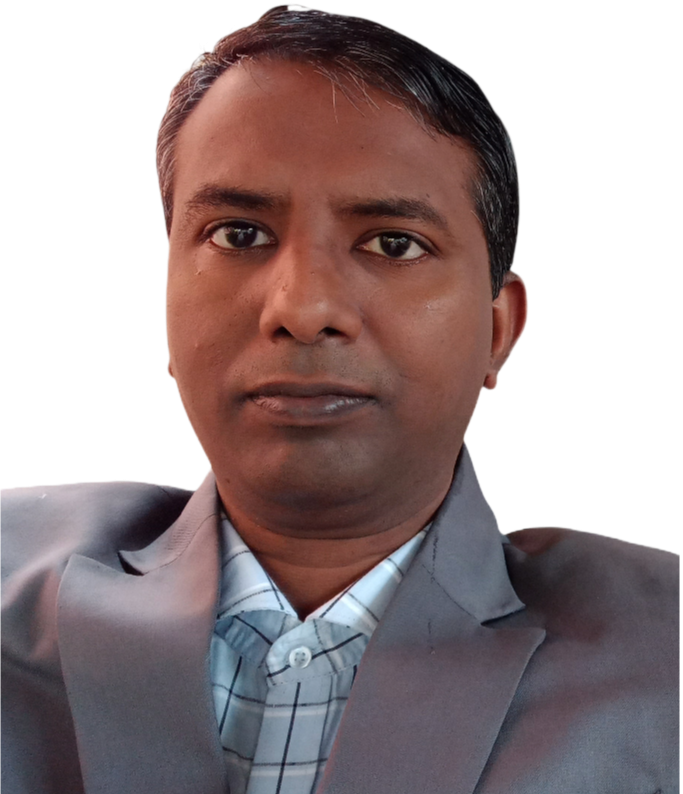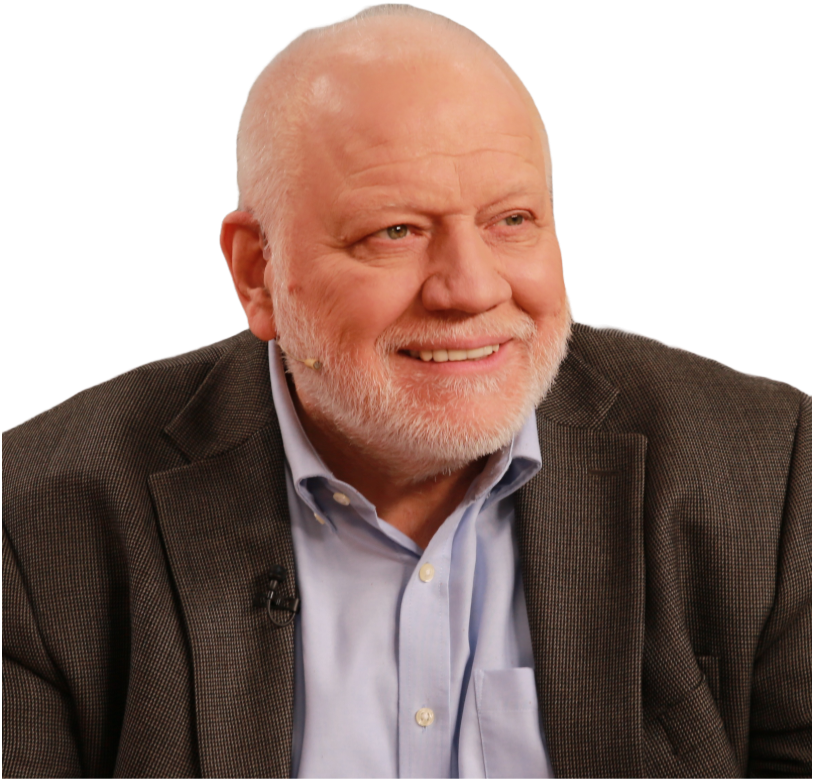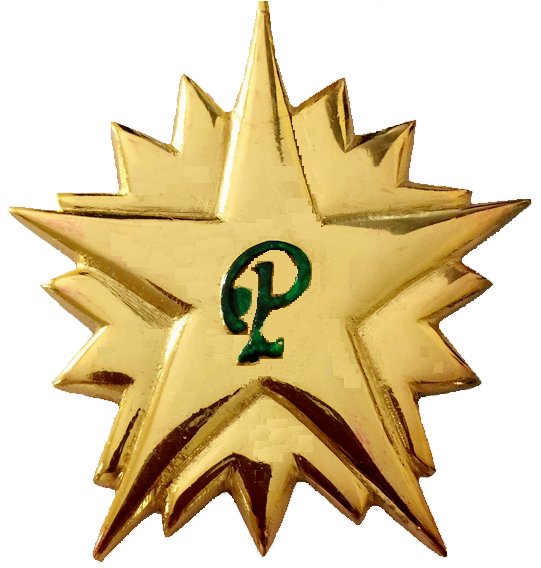
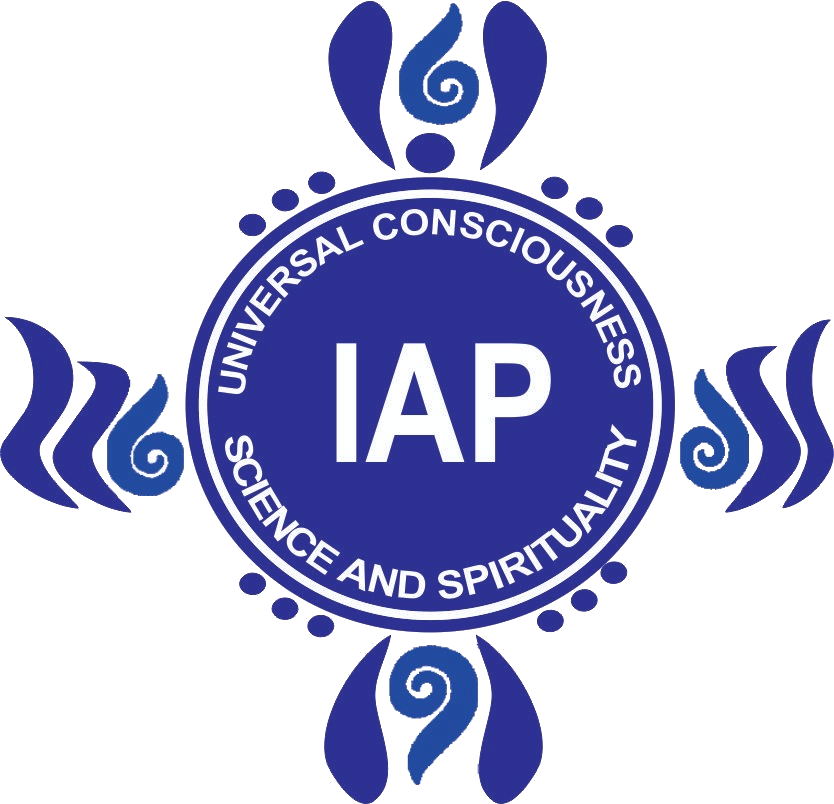
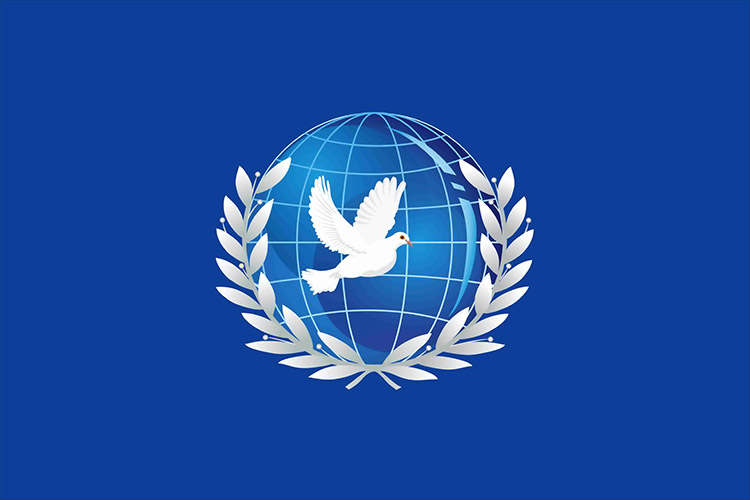

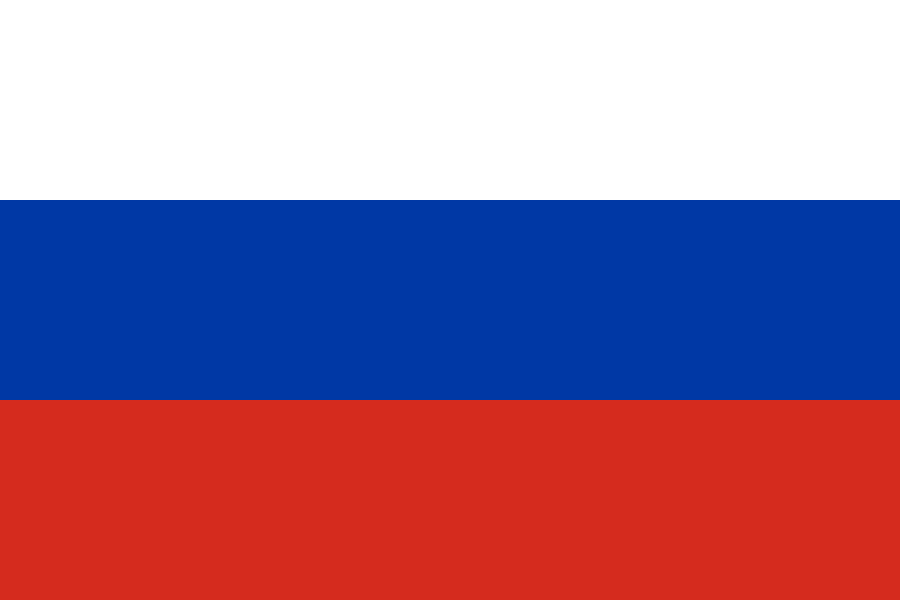
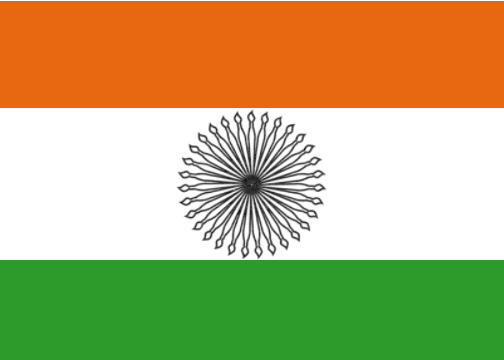


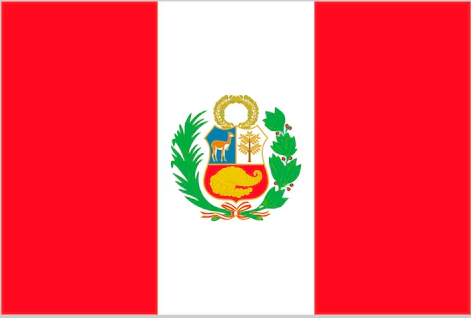

International Conference - IAPIC-2025
Science and Spirituality for Global Peace and Harmony
(April 09-12, 2025)
Organized by:
Institute of Ancient Philosophy Trust, Hyderabad, India
In association with
Russian Academy of Sciences and Academy of Engineering, Pentagram Technologies (India), Pentagram Technologies US LLC (USA), Pentagram Research (UK), BEST Society (India)
PRC Global Technologies Inc. (Canada), World Philosophical Forum, Gusi Peace Prize International (Philippines), Techno Graam Incubation Council, Sri Chaitanya Saraswat Institute
Apart from invited and keynote speakers, several students, faculty members, professionals and spiritual leaders would be presenting their research papers during various sessions.
Home◄►Secretariat◄►Speakers◄►Topics◄►Events◄►Forms◄►Sponsors◄►Conference Venue◄►Tutorials◄►Special Sessions◄►Contact Us◄►Notice Board◄►Gallery
INVITED SPEAKERS
|
E. G. Rajan |
Prof. Dr. E. G. Rajan B.Sc., DMIT, ME, PhD, FIE is the conference chair of IAPIC 2025 with 52 years of experience in teaching, research and administration. He has supervised more than 100 PhD scholars and 15 Post Doctoral Fellows till date. More than 500 research papers have been published by him and his students. Since 1984, he has been working on Constructive Mathematics and Logic due to Prof. Andreii Andreevish Markov and Prof. N. Y. Shanin. He has evolved the paradigm of “Symbolic Computing” in 1984 based on Markov’s “Theory of Algorithms”, which laid the foundation for the development of the modern concept of “Artificial Intelligence”. His hypothesis “One day the intelligent machines created by humans would rule humans” appeared as an article in the College Magazine, 1973, of the Madras Institute of Technology, Chromepet, Madras. Later in 1984, he proposed another hypothesis “Whatever humans think, lifeless machines can execute them and so they are called thinking machines” while he was teaching in the Indian Institute of Technology, Kanpur. This hypothesis was proposed as a logical outcome of Markov’s notion of “Potential Realizability”. Later in 1994, he promoted a company “Pentagram Research” wherein he introduced three basic global approaches to the development of nations namely, “Digital Food Initiative”, “Digital Health Initiative” and “Digital Security Initiative”. Various products and projects under these categories were developed subsequently. Some of the very significant products and projects are (i) MedVision 3D/4D (for processing 3D MR images), (ii) GeoVision 3D (for processing subsurface 3D radargrams), (iii) Radar Information System (in support of ELINT operations), (iv) Crime Prediction Support System, (v) Stock Price Prediction Support System, (vi) Virus Genome Analytics, to name a few. Apart from his scientific contributions, his spiritual experience for the past 65 years has enabled him to bring out a number of research papers and books advocating global peace and harmony. His recent book on “Brahma Sutras – A Logical Interpretation” is a repository of Supreme Divine Knowledge. In this regard, he expresses his gratitude to Prof. Dr. Sergey Petukhov and Prof. Dr. Georgy Tolokonnikov of the Russian Academy of Sciences, for their valuable comments on this repository book. |
||
|
|
The conference Secretariat of IAPIC-2025 extends a warm welcome to the following invited speakers of eminence and international reputation. In the capacity of conference chair, I, personally welcome these world renowned academicians, professionals, scientists and philosophers. |
||
|
Michael Patrick Coyle |
Prof. Dr. Michael P. Coyle MD, FACP, FAAP is the Fellow of the Institute of Ancient Philosophy, India. He received his Bachelors of Science degree from Cleveland State University in Cleveland, Ohio. Subsequently, he received his M.D. degree from Wright State University in Dayton, Ohio. He proceeded with his specialty training in the combined specialty program of Internal Medicine and Pediatrics leading to his board eligibility and certification in both specialties. After this, he became a Fellow with the American Board of Pediatrics as well as a Fellow with the American College of Physicians. With regard to his practice of medicine, he has functioned in a variety of capacities. He has served in rural communities through the auspices of the National Health Service Corps, primarily in solo, as well as multi-specialty practices. He then joined the Brody School of Medicine at East Carolina University in Greenville, North Carolina. During his second year at this institution, he was asked to establish a multi-specialty, freestanding outpatient clinic and remained Medical Director of this clinic for 10 years. After this, he served as Chief Medical Officer for a federally qualified health center. Dr. Coyle presently practices clinical medicine as well as academic medicine in the areas of Internal Medicine and Pediatrics. He allows shadowing for college students and actively teaches medical students and residents at all levels. His primary interests include preventive medicine, cardiovascular health and sports medicine. Other interests include, but are not limited to, theoretical astrophysics (novice level). He joined Pentagram Research Centre Pvt Limited, Hyderabad as Vice President in 2012 and subsequently assumed charge as Chief Executive Officer of the affiliated company Avatar MedVision US LLC, NC, USA. |
||
|
A. G. Constantinides |
Emeritus Professor Anthony George Constantinides FREng, NAE, Life Fellow IEEE, Chevalier & Officier, Palmes Academiques, is the Professor of Communications and Signal Processing at Imperial College (London) and former Head of Communications and Signal Processing Division of the Department of Electrical and Electronic Engineering at the same place. He has been actively involved with research in various aspects of digital signal processing, digital image processing, digital filter design, and communications for more than 45 years. His recent work has been directed toward the demanding problems arising in Financial signal processing and he now leads the Financial Signal Processing Lab in the EEE department of Imperial College London. Professor Constantinides has published several books and over 400 learned articles in the areas of Digital Signal Processing, Image Processing, and Communications, and their many applications. He has served as the First President of the European Association for Signal Processing (EURASIP) and has contributed in this capacity to the establishment of the European Journal for Signal Processing. He has been on, and is currently serving as, a member of many technical program committees of the IEEE, the IEE and other international conferences. He has organized the first international series of meetings on Digital Signal Processing, in London initially in 1967, and in Florence (with Professor Vito Cappellini, University of Florence) since 1972. In 1985 he was decorated by the French government with the Honour of Chevalier, Palmes Academiques and in 1996 with the elevation to Officier, Palmes Academiques. He was awarded the Medal of the Association, Palmes Academiques in 1986, and the Medal of the University of Tienjin, Shanghai, China (1981). He holds honorary doctorates from European and Far Eastern Universities. Amongst these he values highly the honorary doctorate from the National Technical University of Athens. In addition he holds Visiting Professorships, Distinguished Lectureships, Fellowships and other honours around the world. Professor Constantinides' life work has been recorded in a series of audio and video interviews for the IEEE (USA) Archives as a Pioneer of Signal Processing. He has served as a Member of the Board of Governors of the IEEE Signal Processing Society, a member of several Technical Committees of the IEEE and the IEE, and is on the Editorial Boards of many professional journals. He has been on the Editorial Board of the Proceedings of the Royal Society, Part B. Professor Constantinides has acted as advisor to many organisations and governments on modern technology and development. He has served on Professorial Selection Committees around the world (15 during the last five years), member of IEE/IEEE Awards Committees, EU University appraising panels, chair (or co-chair) of international conferences. He is a Fellow of the Royal Academy of Engineering, of the Institute of Electrical and Electronics Engineers (USA) and of the Institution of Electrical Engineers (UK). Outside his scientific work Professor Constantinides is actively involved in archaeological studies. He has published on symbols that appear in prehistoric pithoi at the Akrotiri excavations, Santorini. His present archaeological research directions are concerned with the interpretation of diacritical symbols related to animal lists in Linear B and the analysis of the Lahun papyri of the Petrie Museum of Egyptology, London. He holds an Honorary Chair of Archaeology, at the Institute of Archaeology, University College, London. He was the Chief Adjudicator of the PhD thesis of Prof. E. G. Rajan in 1990. |
||
|
Claudio Moraga |
Prof. Dr. Claudio Moraga was born in Valparaíso, Chile. He received the B.Sc. in E.E. from the Catholic University of Valparaíso in 1961; the M.Sc. in E.E. from the Massachusetts Institute of Technology in 1962 and his Doctorate in E.E. from the Technical University Federico Santa María, Valparaíso, Chile in January 1972. Dr. Moraga obtained 1974 a Research Fellowship form the Alexander von Humboldt Foundation and became a Visiting Researcher at the University of Dortmund, Germany. Later he obtained a Professorship for Computer Science at the University of Bremen, returning to the University of Dortmund in 1986, serving a Professorship for Automata Theory until his retirement in 2002. In January 2005, Prof. Moraga was nominated Honorary Member of the Board of the Pentagram Research Centre, Hyderabad, India. In February 2006, Prof. Moraga was awarded a Honorary Doctorate from the University of Niš, Serbia. From March 2006 until December 2015 he was Researcher Emeritus at the European Centre for Soft Computing in Mieres, Asturias, Spain, and Professor Emeritus at the Department of Computer Science and Computing Engineering of the Technical Dortmund University of Dortmund, Germany. The research interests of Prof. Moraga include Multiple-valued Logic, Computational Intelligence, Reversible Computing, and Bent Functions. He was the Main Adjudicator of the PhD thesis of Prof. E. G. Rajan in 1990. |
||
|
Ambassador Barry Gusi |
Ambassador Barry Gusi is the Chairman of Gusi Peace Prize International. Ambassador Barry Gusi is the driving force behind the Gusi Peace Prize International, carrying forward his father Capt. Gemeniano Javier Gusi’s vision to honor global peace builders. As a former ambassador of Micronesia, he institutionalized and expanded the foundation, making it one of Asia’s leading award-giving bodies. Under his leadership, the Gusi Peace Prize has grown globally, with programs promoting human rights, peace, and humanitarian work, including medical missions and outreach. Ambassador Gusi embodies the values of Godliness, Unification, Service, and Internationalism (GUSI), ensuring the foundation’s legacy continues to inspire worldwide. The Gusi Peace Prize stands as one of the world’s most prestigious honors, recognizing individuals and groups who have made profound contributions to peace, human rights, and global progress. This award is not just a symbol of achievement but a powerful affirmation of the values that unite humanity. By celebrating the very best in science, arts, medicine, politics, and humanitarian efforts, the Gusi Peace Prize elevates those who have dedicated their lives to making the world a better place. Through its international acclaim, the prize inspires others to strive for excellence and fosters a global culture of peace, dignity, and respect for all. As Asia’s foremost awarding body, the Gusi Peace Prize elevates the most distinguished individuals and groups who have profoundly shaped the world through their achievements.To be precise, recognizing extraordinary contributions to peace and human dignity on a worldwide scale, the Gusi Peace Prize stands as a beacon of international excellence. Led by the Honourable Barry Gusi, the foundation carries forward a family legacy dedicated to uplifting humanity and fostering international goodwill. |
||
|
Scot Faulkner |
HONORABLE SCOT FAULKNER was the first Chief Administrative Officer of the U.S. House of Representatives. His business-based reforms rebuilt the integrity of House operations, generating cumulative savings of $5.5+ billion USD. These reforms became the operational model for 44 national parliaments and were named one of the Top 100 Innovations in American Government by the Ford Foundation and Harvard University. Collaborated with the U.S. State Department on mentoring leaders of Eastern European and former Soviet countries in developing parliamentary democracies. Served as Executive Director of The European Institute, leading an international team to strengthen the rule of law, transparency, and cooperation among leaders of the European Commission and countries of the European Union. Private sector experience includes serving as Global Practice Leader for the American Management Association (offices in Bangkok, Brussels, Buenos Aires, New York, and Tokyo), and Vice President of Philip Crosby Associates. Led strategic transformation for global corporations, among them ConAgra, Hershey, and the Australia-New Zealand (ANZ) Bank, as well as the Smithsonian Institution and the World Bank. Earlier, Mr. Faulkner was Director of Personnel for the Reagan Campaign and served on the Presidential Transition and the White House Staff. He held executive positions at the Federal Aviation Administration, the General Services Administration, and the Peace Corps. His public sector accomplishments are recognized with 26 management awards and four letters of commendation from the President of the United States. His policy columns are published in The Sunday Guardian of India, The New York Daily News, The Washington Times, The Washington Examiner, Newsmax, and Politico. He provides on-air commentary for ABC-Australia, NewsX-India, Voice of America, and talk radio. He authored the critically acclaimed bestselling Congressional memoir, “Naked Emperors”, and co-authored “Indian Renaissance; The Modi Decade” edited by Dr. Aishwarya Pandit. Earned a Master’s Degree in Public Administration from American University and a Bachelor’s Degree in Government from Lawrence University. Studied at the London School of Economics and Georgetown University. |
||
|
Pramod K Verma |
Prof Pramod K Verma is the Vice Chancellor of Maharishi Mahesh Yogi Vedic Vishwavidyalaya, Jabalpur. Formerly he was Vice Chancellor, Barkatullah University, Bhopal; Director General, Madhya Pradesh Council of Science & Technology; Scientific Advisor, Government of Madhya Pradesh; Director, MP State Remote Sensing Application Centre; Dean, Faculty of Science; Director, IQAC, Vikram University. He carried out Post-doctoral research (Heidelberg University, Germany); Ph. D. Geology (Vikram University); M. Phil. Geology (Vikram University) Gold medalist and M. Sc. Geology (Ranchi University) Gold medalist. He is the President, Earth System Sciences, Indian Science Congress Association (ISCA, Kolkata); Member Executive Committee, Indian Science Congress, Kolkata; Vice President, Indian Society of Geomatics, (ISG, Ahmedabad); Vice President, Indian Society of Remote Sensing (ISRS, Dehra Dun); Vice President, Indian Geological Congress (IGC, Roorkee); National Vice President, VijnanaBharati (VIBHA, Delhi) and President, VijnanaBharati (MalwaPrant). He as decorated with so many awards such as “Ashutosh Mookerjee Memorial Award”, Indian Science Congress Association, Kolkata (2019); “National Amazing Godavari Memorial Award”, Environment & Social Welfare Society, Khajuraho, India (2018); 8th Foundation Day Oration Lecture Award, ICMR-National Institute for Research in Environmental Health (NIREH) (2017; “Prof TRC Sinha Lifetime Achievement Award”, National Environmental Science Academy, New Delhi (2017); "Vigyan Ratna" Award by Jodhpur Chapter of Vigyan Parishad, Prayag (2015); Platinum Jubilee Lecture Award: Earth System Sciences (Indian Science Congress Association, Kolkata) (2014); National Geomatics Award (Indian Society of Geomatics, Ahmedabad) (2013); K K Singh Award (Indian Society of Remote Sensing, Bhopal Chapter) (2012); Indian Science Writers Association Award (ISWA, Delhi) (2011); Geospatial State Leadership Award (Team Award) (2010); MPCST Best Team Award (Team Award) (2007); German Agency for Technical Cooperation (GTZ, Germany) Special Award (1999); Indian National Science Academy (INSA, Delhi) Visiting Fellowship (1998); Science and Engineering Research Council (SERC, DST, Delhi) Visiting Fellowship (1996); German Academic Exchange Service (DAAD, Germany) Post doc Fellowship (1993); FTIYS Fellowship, M P Council of Science & Technology (1992); Young Scientist Award, Madhya Pradesh Council of Science & Technology (1991). He has visited many countries like USA, Germany, Japan, China, Brazil, France, Spain, Nepal, Norway, Netherland, Luxemburg, England. He is a Fellow, Geological Society of India (GSI, Bangalore); Fellow, Society of Earth Science (SES, Lucknow); Fellow, Indian Society of Remote Sensing (ISRS, Dehra Dun); Fellow, Indian Society of Geomatics (ISG, Ahmedabad); Fellow, Gondwana Geological Society (GGS, Nagpur); Member of American Geophysical Union (AGU), USA; International Association for Promoting Geoethics (IAPG), Italy; Society of Geoscientists for International Development (AGID), Brazil; International Association of Hydrological Sciences (IAHS), UK Geochange, London; HAL, Germany |
||
|
Carlos Antonio Arias Reggeti |
Carlos Antonio Arias Reggeti Chief Executive Member of Multitest Solutions LLC, Miami, Florida USA. Business Consulting: Specializing in strategic planning, governance structuring, business optimization, and startup development. He was honored with the WPF prestigious titles of Earth Citizen of the XXI Century and Earth Aristocrat of the XXI Century. He has been leading global citizenship initiatives, training individuals worldwide on ethical governance and intercultural dialogue, while delivering impactful ideas at international conferences. He has been advocating for integrating philosophical reasoning into global governance, influencing policymakers, publishing works, and facilitating debates that bridged classical methods with modern challenges to foster innovative approaches to ethics and governance. Since 2013, he has successfully served dozens of customers across diverse industries and markets, including the USA, Venezuela, Mexico, Colombia, Ecuador, Estonia, Lithuania, Mexico, Ireland, and the Philippines, delivering impactful solutions for scalable growth. His main achievements: Led the end-to-end development of multiple startups, from conceptualization to operational execution, including licensing for fintech (financial institutions) in jurisdictions like the USA, Colombia, Estonia, Lithuania, and the Philippines. • Created comprehensive strategic frameworks, including business plans, financial models, and roadmaps, driving sustainable growth and securing over $3 million in funding. • Transformed SMEs into scalable, high-performing organizations by integrating governance, compliance, marketing, and operational strategies. • Conducted on-chain block chain analyses and presented findings to U.S. regulators. • Developed and implemented advanced business frameworks, including equity distribution models, stakeholder agreements, and corporate governance policies. • Delivered digital transformations for clients, systematizing processes to enhance efficiency and scalability while reducing costs. • Invited to the Congress of Colombia to debate cryptocurrency regulations. • Increased client revenue by over 100% year-over-year through innovative sales strategies and customized frameworks, including training and mentoring international sales teams. • Delivered industry-leading compliance solutions, ensuring operational integrity and resilience during crises, including the development and implementation of robust compliance and operational frameworks. |
||
|
Ashok Sangappa Alur |
Prof. Dr. Ashok Sangappa Alur PhD is the Founder Vice Chancellor of Kodagu University, Government of Karnataka, India. He served as member of the Karnataka State Agriculture Policy Committee set up by Government of Karnataka(2022); as member of High Power committee for suggesting policy and approach for enhancement of GER in six districts of Kalyana Karnataka Region of Karnataka appointed by Karnataka Higher Education Council, Government of Karnataka; played lead role in successful formulation and launching of Karnataka Farmer Producer Organizations Policy-2018 along with implementation guidelines (2018). Dr. Ashok has contributed for the establishment of New Horticultural University in Bagalkot, infrastructure development and setting of centers of excellence; led the establishment, planning of Bharatiya Engineering, Science and Technology University at Anantapur as Founder Vice Chancellor. Dr. Ashok has facilitated over 50 national and international institutional collaborations with public and private sector organizations for the promotion of Sorghum and mpearl millet in Asia; facilitated over 5 National level institutional collaborations at Kodagu University. He also facilitated over 10 national and international institutional collaborations at Horticultural University Bagalkot International Development Cooperation; successfully spearheaded the international Initiative of ICRISAT-FAO-CFC in India, China and Thailand for promotion of sorghum and pearl-millet based value chain with a mission to reduce poverty, hunger, malnutrition and environmental degradation in dry land tropics. He developed a innovative institutional model for implementation of multi- partner projects and he was recognized with a certificate of appreciation and loyalty award from International Crops Research Institute for the Semi-Arid Tropics (ICRISAT). He has published several articles, books, bulletins and news paper columns, seminars, trainings to popularize science among several stakeholders and received the recognition for outstanding contributions in the field of science communication by Vision Group on Science and Technology by Vision Group on Science &Technology, Department of IT, BT & Science and Technology , Government of Karnataka. His contribution to agriculture is remarkable. |
||
|
V. Mohan Doss |
Rear Admiral V. Mohan Doss, AVSM, VSM (Retd) is the former Assistant Chief of Naval Staff (Air Materiel), Ministry of Defense, Government of India. He was decorated with Vishist Seva Medal (Devotion to Duty) and Adi Vishist Seva Medal by the President of India in 2013 and in 2021 respectively. He has been an Engineering professional with over 35 years of wide-ranging experience in the Aviation arm of Indian Navy operations, maintenance, cross-functional leadership, contracts & project management, operational Logistics, Human Resource, training & Leadership Development. Commissioned into Engineering Branch (Aviation) of Indian Navy in 1986, and retired as Assistant Chief of Naval Staff (Air Materiel) at Naval Headquarters, New Delhi (Rank – Rear Admiral) in 2021. He served for Amrita Vishwa Vidyapeetham, Coimbatore as a Director, Academia-Industries Partnership for over 15 months and currently with Kumaraguru Centre of Industrial Research and Innovation, Kumaraguru College of Technology, Coimbatore as Director and focusing on Defense Projects and Research. Chief Staff Officer (Tech), Head Quarters Naval Aviation, Goa in rank of Commodore • Aviation ‘Class and Engineering Authority’ functioning under IHQ MoD(N) Optimum material state of aircraft pan-Navy Air Logistics Upgrade, modifications to aircraft and ground systems Indigenisation Extensive interface with CEMILAC, RCMA, DRDO, HAL & DPSUs, CRI at headquarters level Aeronautical Quality Assurance, Inspections, Audits Commodore Superintendent, Naval Aircraft Yard (Kochi), in rank of Commodore • ‘Fourth Line’ maintenance of aircraft, engines and systems Indigenisation: formulation of specifications, quality test procedures, quality acceptance schedule, flight trials, user acceptance, etc. Extensive interface with CEMILAC, RCMA, DRDO, HAL & DPSUs, CRI at field level Innovation to bridge capability / obsolescence gaps. Director, Naval Institute of Aeronautical Technology, Kochi in rank of Commodore • Training on aircraft maintenance for all naval air technical officers, sailors and civilians and award of MTech / BSc / Diploma Degree Projects in electrical, aeronautical, mechanical, AI / ML / AR / VR domain Interactions with industry, AICTE, other reputed academic institutes Mid-career courses for officers, including Indigenization capsule. More than a warrior, he is an excellent human being interested in advocating global peace and harmony using scientific and spiritualistic methods. |
||
|
C. Sree Rama Prabhu |
Dr. C. Sree Rama Prabhu is a distinguished figure in the field of Information Technology and e-Governance. His extensive career encompasses leadership roles, international exposure, multi-sectoral experience, and significant contributions to academia and industry. His illustrious career spans over four decades in the IT sector. Throughout his 40 years of service, Dr. C. Sree Rama Prabhu has initiated and overseen numerous groundbreaking projects, including Rural e-Seva, e-Panchayat, Smart Village, e-Governance Grid, and Cloud architecture for e-Governance. He has been a pioneer in integrating technology into governance, thereby enhancing the efficiency and reach of public services. Dr. C. Sree Rama Prabhu holds a Master of Technology (M.Tech.) degree in Computer Science from the Indian Institute of Technology, Bombay, with a specialization in Electrical Engineering. Dr. C. Sree Rama Prabhu served as the Director General of the National Informatics Centre (NIC), New Delhi, in May 2014, leaving behind a legacy of innovation and leadership. During his tenure at NIC, Dr. C. Sree Rama Prabhu held several key positions, including State Informatics Officer for Andhra Pradesh and Tamil Nadu, Chairman of the Project Evaluation Committee, and Head of the Energy Informatics Division. He played a pivotal role in developing and implementing numerous e-Governance projects, including the e-Panchayat project, which was successfully rolled out across the country. He Worked on IT projects in the USA for three years. Delivered lectures in Singapore, Japan, Germany, France, and Australia, enhancing international collaboration and knowledge sharing in IT. He Gained national exposure and work experience in the private sector (TCS, CMC, Tata Motors), public sector, and government (NIC), specializing in IT and e-Governance. He authored and published numerous research papers internationally in areas such as Cloud Computing, Fog Computing, and the Internet of Things. And also Published 12 textbooks on frontier areas of IT, Computer Science, and e-Governance, contributing significantly to academic literature and education. Dr. C. Sree Rama Prabhu chaired and organized several prestigious conferences, including COMAD 98, National Conferences on Mobile Computing, Data Warehousing in Government, Asia IT Ministers Summit 2006, and ICFCIOT 2017. He Conceived, designed, and successfully implemented the e-Panchayat Project in 475 Village Panchayats in Andhra Pradesh, enhancing rural governance through IT. He Established the National Data Centre at Hyderabad and operationalized NIC's Disaster Recovery Centre, ensuring robust data management and recovery capabilities. He Implemented NOFN (National Optic Fiber Network) Applications in pilot projects and contributed to the NII 2.0 report, driving the development of national information infrastructure. He Headed the Innovation Initiative of NIC, DeitY, authored the Innovation Policy of DeitY, Government of India, and promoted cloud computing innovations as the founder Vice Chairman of the Cloud Computing Innovation Council of India (CCICI). Dr. C. Sree Rama Prabhu received numerous awards, including the Oracle e-Governance Excellence Award (2006), Skoch Challenger Award (2006), Rashtriya Gaurav Award (2009), and the CIO100 Award (2010), in recognition of his contributions to IT and e-Governance. Currently, Dr. C. Sree Rama Prabhu serves as the Chairman of the ACM Hyderabad Deccan Chapter, a position he has held since April 2023. He is also the Director of Research and Innovation at KMIT (Keshav Memorial Institute of Technology), where he has been driving forward innovative projects and establishing the School of Data Science since June 2014. He continues to contribute to academia by writing new books on Big Data Analytics and Fog Computing. In brief, Dr. C. Sree Rama Prabhu’s extensive experience and contributions to the IT sector, combined with his ongoing leadership roles and academic endeavors, reflect his enduring commitment to advancing technology and e-Governance in India. We are honored to have him with us today. Based on his spiritual contribution "Dharma Yoga", which is common for all religions and science, he was conferred with the prestigious award of "Doctor of Divinity" by the Henry Martin Institute, Hyderabad, India. |
||
|
S. Muralidharan |
S. Muralidharan is an experienced Technology and Management Professional with a demonstrated history of setting up Information Technology institutions and online varsity for soft skills. Am having an overall experience of more than thirty five years. Senior Member, Institute of Ancient Philosophy, Hyderabad, India; Hon. Director (Projects), Horticulture Produce Management Institute, NOIDA; Advisor, India Millet Initiative (an off-shoot of HPMI) which was responsible for creating Nigeria Millet Initiative, Indo-US Millet Initiative, Namibia, Gambia and are contemplating to create 60 such chapters across the globe. (http://indiamilletinitiative.org/meetTheTeam.php); As part of Consultancy, studied various issues in Gram Panchayats in Ramnad district, Jodhpur, Bundelkhand, Bikaner and Jaisalmer; Technology and Business Consultant, Tekfederal, a start-up, working in the areas of Renewable Energy, Agriculture-based Technologies, Smart Village Concepts, Waste Management and Water Treatment Project; Honorary Director (Awareness Program) - Foundation for Development Research, Mohali, Punjab. Has been involved in sensitizing general public on vector diseases, self-medication woes, problems arising out of water-borne diseases, etc. and also involved in suggesting problem mitigation ways to create water-test labs, etc.; Founder President, Akhil Bharatiya Human Rights Association, Amritsar, Punjab; Represented Civil Society in spreading awareness and conducted sensitization programs of Millennium Development Goals in India, Advocacy campaigns on UN Covenants on Human Rights, and the Sustainable Development Goals (SDG of UN); Served as Executive Director, Millenium Synergy Pvt. Ltd., New Delhi (HQ: Bangalore) (Harnessing Renewable Energy – engaged in rural electrification projects using Solar Energy in the States of Jharkhand, Rajasthan, Madhya Pradesh, Chhattisgarh, Karnataka, etc.); Served as Resident Vice-President, CDS International Ltd., Bangalore (Technology Company, wholly owned subsidiary of India Glycols Limited group); Was Chief Technology Officer & Founder Member, Personalitree Academy Ltd., New Delhi (incubated the project to promote soft skills online varsity (one of its kind in the year 2000) with the VC funding from various top-notch Industrialists in the country).; In collaboration with Defense Institute of Psychological Studies, studied the behavioral aspects of engaging retired armed force officials in the corporate under the aegis of Directorate General of Resettlement, New Delhi. Also offered soft skill courses to Indian Military Academy and Rashtriya Indian Military College, Dehra Dun, India; Was Chief Technology Officer, The Centre is an important venue for holding international conferences on cultural exchange, initiated by the Centre itself and by other institutions. Among the notable events organized by the IIC were the Asian Relations Commemorative Conference in 1987, two conferences held in India and the USSR in 1988, Understanding Contemporary Africa in 1996, the Symposium on Greece-India in 1996, and 'Austrian Millennium'- commemorating the founding of the Austrian nation in 1997. Seminars on SAARC, South Asia, China; India & Europe, and India and Australasia. Had been involved as part of organizing committees for various seminars (both national and international), task forces and was involved in the publications of a number of economic affairs publications (1984 to 1998), besides creating Information Technology Department of the Centre; Was actively involved in the L M SINGHVI Committee which was formed in 1986 under Rajiv Gandhi’s administration to investigate the challenges that Panchayati Raj institutions administrations were facing. The Nyaya Panchayats were established to adjudicate and settle disputes; Gram Sabhas were given additional attention; and it included a plan to just provide local governments with financial autonomy. In 1989, was also part of the Task Force on Child Labor which was set up by the Child Labor Advisory Board under the Chairmanship of Dr. L. M. Singhvi. |
||
|
B. M. Mehtre |
Prof. Dr. B. M. Mehtre M.Tech., PhD is a distinguished expert in Cyber Security and Data Privacy, with over 12 years of dedicated experience in the field, particularly within the banking technology sector. He recently retired as a Professor at the Institute for Development and Research in Banking Technology (IDRBT), a research institute established by the Reserve Bank of India. He has over 30 years of industry and academic experience. He graduated from Gulbarga University in Electronics Engineering in1985, obtained M.Tech and PhD degrees from teh Indian Institute of Technology, Kharaghpur, India respectively in 1986 and 1991. He has supervised 7 Ph.D and 42 M.Tech. students so far. He has published 34 journal papers, 84 conference papers, and he holds 2 U.S. patents. As a professor at IDRBT (2011-2024), Dr. Mehtre played a pivotal role in the development of the Center for Cyber Security, designing and delivering specialized courses for PhD, M.Tech., and other postgraduate programs. He also coordinated international programs in collaboration with the State University of New York, Buffalo. He also carried out security audit for 3 consecutive years for the CA department as per the CCA guidelines. Ealier, he was Deputy General Manager at CMC Ltd, Hyderabad (2000-2011), where he focused on R&D in technologies for e-commerce and electronic copyright management systems. From 1992 to 1995, he was Research Associate at National University of Singapore, where he worked on multimedia storage and retrieval research. In 1990, he was Visiting Scholar at Michigan State University, East Lansing, USA. He developed and led cyber security drills for the Indian banking sector, significantly contributing to the sector’s resilience against cyber threats. Further, he had established the Indian Banks’ Center for Analysis of Risks and Threats (IB-CART), a cyber-threat intelligence-sharing platform now subscribed by over 100 banks.Dr. Mehtre’s career is marked by his commitment to advancing cyber security, fostering research, and developing the next generation of experts in the field. His contributions continue to influence both the academic and professional landscapes of cyber security in India. |
||
|
Fidel Gutierrez Vivanco |
Prof. Dr. Fidel Gutierrez Vivanco is the Vice President of the World Philosophical Forum with degrees as a Doctor of Philosophy, a Master's in Epistemology graduate from the National University of San Marcos, and a Bachelor's in Medical Technology graduate from the National University Federico Villarreal in Lima, Peru. He was awarded the International Gusi Peace Prize in Philosophy and Science in the city of Manila in 2012. He is the author of the Princonser method, an innovation in the fields of philosophy, science, and technology. Furthermore, he has authored the following publications: "Man and His Spirit," published in Lima, Peru, in the year 2000. "Philosophy of Conservation," published in Lima, Peru, in the year 2000. "The Principle of Success," published in Buenos Aires, Argentina, in the year 2005. Author of the chapter "Philosophy of Conservation and Bioethics" in the book "Bioethics, Volume II," edited by the Catholic University of San Antonio de Murcia, published in Spain in 2005. "Philosophy of Destruction," published in Lima, Peru, in the year 2007. "The Princonser Method and the Human Dimension," published in Madrid, Spain, in the year 2014. "Being a Father, Teacher, and Philosopher," published in Lima, Peru, in the year 2022. "The University Confronting the World's Problems," published in Lima, Peru, in the year 2022. He has participated as a speaker in the World Philosophy Congress across the world including Istanbul, Turkey in 2003; Athens, Greece in 2013; Warsaw, Poland in 2016; Lima, Peru in 2018; and Beijing, China in 2018. He has also taken part in the World Philosophy Forum in Kuala Lumpur, Malaysia in 2019 and 2022, as well as in Coahuila, Mexico in 2021. Additionally, he has been a postgraduate teacher at various universities and is the author of a new educational methodology based on universal wisdom. He has also innovated the research method and its application in the humanities. In the year 2020, he founded the Princonser School of Philosophy to disseminate a new approach to philosophy as a response to the challenges of the modern era. Through this school, he promotes innovation in the philosophical foundations of education, politics, and science, to contribute to the formation of planetary consciousness and universal wisdom through education, which is necessary for the integration and preservation of humanity. In 2023, he founded the University Princonser to address global issues through education with a new vision for the 21st century. In the same year, he created the digital magazine "Philosophy, Science, and Method – Path to Universal Wisdom," where articles prepared by teachers applying the Princonser methodology are published. |
||
|
Igor I. Kondrashin |
Igor I. Kondrashin PhD is a Professor, President of WORLD PHILOSOPHICAL FORUM, Laureate of the International Gusi Peace Prize Award. He is a Classical Philosopher (the scientific Philosophy, Secularity), a former diplomat in many countries. He is the Founder Chairman of World Philosophical Forum & Chairman of the Steering Scientific Committee; WPF President & CEO, Chairman of Council of coordinators & the WPF Russian Branch Head; Rector of the WPF Aristotelian Philosophical ACADEMY; author and the Head of the WPF Global learning program of “Lifelong civil education & action for all - "Earth-XXI CITIZENSHIP": establishment & enlargement of World (Earth) community of Earth citizens - Earth-XXI CIVILIZATION within «Global Development Goals of Humanity in the 21st century», proclaimed by United Nations, and UNESCO “Medium-Term Strategy”; Longtime UNESCO expert and advisor, assisting in creating “UNESCO Strategy on Philosophy”; active member of the Russian Philosophical Society and the Russian Humanist Society; Honourable Founding member of the “World Thinkers’ Panel for Sustainable Future of Humankind” in Slovenia; Researcher within humanistic and natural sciences. He is the author of fundamental books on theoretical & applied (practical) philosophy: 1. Dialectics of Matter - Systemic approach to fundamentals of philosophy; This book gives the description of the new ontological model of the World (The equation "Development = motion in time - quality - space"), in English; 2. The Truths of Being in the mirror of Consciousness - Systemic approach to dialectics of mentality (in Russian); 3. Code of secular behavior - What to be to become a MAN? - (in Russian); 4. Energy & its phantoms - E = mc2 - ??? - (in Russian). |
||
|
Manish Prateek |
Prof. Dr. Manish Prateek M.S., Ph.D. is working as a Professor and Pro Vice-Chancellor at DBS Global University, with a mixed experience of over 25 years in Industry, Research, and Academia. He is also President of Next Generation Computing Technologies. He earned his UG and PG in Computer Engineering from Kursk State Technical University (now South West State University), Kursk, Russia, and Ph.D. from L. N. Mithila University, Darbhanga, Bihar, in the area of Manufacturing & Robotics and the title of the thesis is “Automation and Microprocessor Based Control of an Optimally Designed Solar Tracking System”. After completing his degree, he started his career in IT Industry. In the year 1999, he got an opportunity to work on an R&D project for two years in the area of Manufacturing & Robotics at Memorial University of NF, St. John’s Canada. He is the pioneer in modelling and conceptualizing Industry oriented B. Tech. programs in Computer Science and Engineering in collaboration with IBM India in 2010. Nowadays, such UG-Level Specialized Programs framework has been accepted, appreciated, and adopted by many IT industries and academia. He has guided 16 Ph.D. scholars in the areas of Robotics, Machine Vision, Ad Hoc Network, Image Processing, and Multi-Valued Computing Systems. He has published more than 100 Journal and Conference papers in International Journals and Conferences. Set-Theoretic Rajan Transform (STRT) is one of the biggest contributions made in the area of Computer Science and Engineering due to which he was nominated and awarded as “Distinguished Academician” a lifetime achievement award for his achievement in Academics and Research & Development, by the Board of Directors of Pentagram Research Centre (P) Ltd. in the year 2010. He is also a Fellow at the Institution of Engineers (India) and is a Life Member of the Indian Society of Technical Education. |
||
|
Petoukhov Sergey Valentinovich |
Sergey V. Petoukhov, Prof., Dr. Sci., is currently Head of Laboratory of biomechanical systems research in Mechanical Engineering Research Institute of the Russian Academy of Sciences; Chief researcher of the “Center of interdisciplinary researches of musical creativity” of the Moscow State Conservatory by P.I. Tchaikovsky; Editor-in-Chief of “International Journal of Mathematical Sciences and Computing” (Hong Kong). Selected honors and awards: Laureate of the State prize of the USSR; Academician of the Academy of Quality Problems (Russia, from 2000); Grand Doctor of Philosophy, Full Professor (The European Academy of Informatization, Belgium, 2004); the Chinese government inserted his name in the «List of Outstanding Scientists in the World» in 2012 and provided a financy of his lectures in China; Chairman of Advisory Board of «International Symmetry Association», Budapest, Hungary, from 2003 till now; Honorary chairman of Board Directors of «International Society of Symmetry in Bioinformatics», USA, 2005; co-leader of long-term scientific cooperation between Russian and Hungarian Academies of Sciences in the theme «Non-linear models and symmetrological analysis in biomechanics, bioinformatics and theory of self-organizing systems»; Scientific supervisor and main contractor for competitive state contracts on bioinformatics in 2009-2011; Vice-Chair of the International Advisory Board Directors of the Research Association of Modern Education and Computer Science (Hong Kong) from 2016; Vice-President of the International Society of Natural Medicine (Slovakia); scholarship for scientific internship in Germany from the German Academic Exchange Service (DAAD, 2017). He is the author of approximately 250 scientific works including the following 8 books: 1. Petoukhov S.V. Biomechanics, Bionics and Symmetry. – Moscow, Nauka, 1981, 239 p. (in Russian, http://petoukhov.com/biomechanics-bionics-symmetry-Petoukhov.pdf ); 2. Petoukhov S.V. Geometries of Living Nature and Algorithms of Self-Organization. – Moscow, Znanie, 1988, 48 pages (in Russian, http://petoukhov.com/geometrii_zhivoy_prirody_petoukhov.pdf ); 3. Petoukhov S.V. Biosolitons. Foundations of Solitonic Biology. - Moscow, GP Kimrskaya tipographia, 1999, 288 pages (in Russian, http://petoukhov.com/?page_id=278 ); 4. Petoukhov S.V. The Bi-periodic Table of the Genetic Code and the Number of Protons. – Moscow, Youth Book Centre, 2001, 258 pages (in Russian, http://petoukhov.com/biperiodic_table_of_the_genetic_code-Petoukhov.pdf ); 5. Petoukhov S.V. Matrix Genetics, Algebras of the Genetic Code, Noise-Immunity. Moscow, Regular and Chaotic Dynamics, 2008, 316 pages (in Russian, http://petoukhov.com/matrix-genetics-petoukhov-2008.pdf ); 6. Petoukhov S.V., He M. Symmetrical Analysis Techniques for Genetic Systems and Bioinformatics: Advanced Patterns and Applications. - Hershey, USA, IGI Global, 2009, 271 pages, http://www.evernote.com/l/AFnRwSleQRRMI7PGAKFzZgkUEdMP10Lv5J0/; 7. He M., Petoukhov S.V. Mathematics of Bioinformatics: Theory, Practice, and Applications. - John Wiley & Sons, Inc., USA, 2010, 298 p; 8. Petoukhov S.V., He M. Algebraic biology, matrix genetics, and genetic intelligence. - Singapore, World Scientific, 2023, 616 p., https://doi.org/10.1142/13468; S. V. Petoukhov is a specialist in theoretical and mathematical biology (in particular, in problems of genetic coding and bioinformatics), biomechanics, crystallography, theories of symmetry and self-organization. See additional information at http://petoukhov.com/. |
||
|
Tolokonnikov Georgy Konstantinovich |
Georgy Konstantinovich Tolokonnikov Candidate of Physical and Mathematical Sciences, employee of FNATS VIM RAS; 1970-1976 - student of the Lomonosov Moscow State University, Faculty of Physics, Department of Quantum Theory; 1977-1980 - post-graduate student of the Steklov Mathematical Institute of the Academy of Sciences of the USSR; 1982 - defense (Steklov Mathematical Institute of the Academy of Sciences of the USSR) of the thesis for the degree of candidate of physical and mathematical sciences; 1983-1985 - doctoral student at Steklov Mathematical Institute of the Academy of Sciences of the USSR; 1986-1993 - Head of the Interdepartmental Laboratory of the Ministry of Higher Education of the Russian Federation (Russia) and the Steklov Mathematical Institute of the Academy of Sciences of the USSR (RAS) "TsIPS"; 1991 - 2005 - General Director of Information Technologies Center LLC; 1993-2004 - Assistant to the Director of the Main Computing Center of the Ministry of Agriculture of Russia; 2001-2003 - Head of the Information Center, GOSNITI, Agricultural Academy of Russia; 2013-2018 - Researcher of the Stem Cell Laboratory of the Federal State Budgetary Scientific Institution FSC VIEW RAS; 2017 - up to the present time - First Deputy Editor-in-Chief of the scientific journal "Biomaсhsystems"; 2017- up to the present time - employee of FGBNU FNATS VIM RAS; 2020 - up to the present time - Scientific Secretary of the International Interdisciplinary Seminar "Algebraic Biology and Systems Theory"; 2020 - up to the present time - Scientific Secretary of international conferences held in Moscow, organized by the International Center of Informatics and Computer Science (ICICS); 2021 - up to the present time - Co-Head of the Section "Mathematical Biology and Systems Theory" of the Scientific Council under the Presidium of the Russian Academy of Sciences on Artificial Intelligence (NSMII RAS). He is the author of 3 monographs and about 100 articles in journals. He is a specialist in the field of mathematical physics, algebra, category theory, theory of functional and categorical systems and artificial intelligence. The main directions open and developed by him: the method of functional equations in the theory of algebras; categorical systems theory. Main works: Tolokonnikov G.K. "On algebras of observable physical theories close to canonical", TMF. 1984. T. 60. No. 1. pp. 87-92; Tolokonnikov G.K. "On algebras of observables of one class of associative mechanics", TMF. 1985. T. 63. No. 2. pp. 164-174; Tolokonnikov G.K. "On the classification of algebras of functions close to associative, using the method of functional equations", Mathematical notes. 1986. T.39. No. 6. pp. 806-818; Tolokonnikov G.K. "Classification of algebras of functions close to Lie ones and other translation invariant functional algebras", Mathematical Notes. 1986. T. 40. No.5. pp. 645-657; Tolokonnikov G.K. "Functional equations, the Feynman integral, and universal envelopes of Lie algebras", Izv. universities. Mat. 1987. No. 1. pp.79-82; Tolokonnikov G.K. "The method of functional equations in the theory of algebras", Algebra and logic. 1988. T. 27. No. 1. pp. 57-78; Tolokonnikov G.K., “Computable and non-computable physical theories according to R. Penrose. Part 3, App. math., quantum. theory and programs., 2012, vol. 9, no. 4, pp. 3-294; Tolokonnikov G.K. Informal categorical systems theory. Biomaсhsystems. 2018. Vol. 2.No.4. pp. 41-144.; Tolokonnikov G.K. Convolution Polycategories and Categorical Splices for Modeling Neural Networks. Advances in Intelligent Systems and Computing, Volume 938, 2020, pp. 259-267; Tolokonnikov G. K. The use of convolutional polycategories in problems of artificial intelligence, Advances in Intelligent Systems and Computing, Volume 1126, 2020, pp. 23-32; Tolokonnikov G.K. Modeling Biomolecular Structures in Categorical Systems Theory, EPJ Web of Conferences, vol. 248, 01015 (2021) pp. 1-6; Tolokonnikov G.K. Categorical splices, categorical systems and their applications in algebraic biology, Biomachsystems, vol. 5, No. 1, 2021, pp. 148-235; Tolokonnikov G.K. Chernoivanov V.I. Fundamentals of the Theory of Biomaсhsystems, Moscow, 2024, 303 pages. |
||
|
Alexander I. Ivanus |
Alexander I. Ivanus, Prof., Dr. Sci. is currently Professor of the Department of Modeling and System Analysis; Chief Researcher at the Institute of Digital Technologies, Faculty of Information Technology and Big Data Analysis, Financial University under the Government of the Russian Federation. Corresponding member of the Vernadsky Russian Academy of Natural Sciences. He is the author of intellectual property worth 12.5 million rubles. He is a regular participant in international symposiums, forums and conferences on the issues of a systematic approach to the study of objects of various nature (including issues of economic management based on human brain modeling and semantic analysis of information flows). He teaches disciplines at Financial and other universities in Moscow.: Theory of fuzzy sets and soft computing, Mathematical and simulation modeling, Game theory, Econometrics, System analysis, Operations research and system optimization, Mathematical modeling of financial and economic processes, Mathematical modeling and quantitative research methods in management. He has developed author's courses in the following disciplines: "Artificial generation of new knowledge", "Methods of system research of economic processes", "Game-theoretical modeling in Economics", "Operations Research and System Optimization", "Fundamentals of System Analysis and Modeling". He is the author of more than 120 scientific papers, including the following 12 books: 1. Ivanus A. I. Artificial generation of new knowledge: Modeling of thinking processes for obtaining new knowledge outside the human brain. A qualitative leap in the development of artificial intelligence. Moscow: LENAND, 2022– 200 p. (The science of artificial). (12.5 pp.); 2. Ivanus A. I. Cognitive methods and technologies of economic management in conditions of uncertainty: An educational and methodological guide/ A. I. Ivanus. Moscow: Prometheus, 2019 – 152 p. (9.5 pp.); 3. Ivanus A. I. System aspects of simulation modeling methods: A textbook / A. I. Ivanus– Moscow: Prometheus, 2020– 148c. (9.25 pp.); 4. Ivanus A. I. Artificial generation of new knowledge. Textbook for the master's degree in the discipline "System analysis and modeling". – Financial University. Electronic edition https://org.fa.ru/app/umm/tree?documentId=f54ea729-b977-4603-b385-9004ded934a22022 . 2022. (8.87 pp.); 5. Ivanus, A.I. Cognitive approach to the harmonious management of business economic security: a monograph / A.I. Ivanus // Edited by E.M. Soroko, I.A. Belousova, T.I. Egorova-Gudkova // — Odessa: Institute of Creative Technologies, 2011. pp. 156-174. (1.05 pp); 6. Ivanus, A.I. The principle of the collective core of truth on the example of the task of harmonizing the assortment of goods: a monograph / A. I. Ivanus // Edited by E.M. Soroko, T.I. Egorova-Gudkova // — Odessa: Institute of Creative Technologies, 2011. pp. 345-348. (0.4 pp.); 7. Ivanus A.I. The concept of preventive sapiens management of sustainable economic development // Monograph (in Russian) "Economic and financial potential of management systems: theory and practice". —Donetsk (Ukraine). — 2015. pp. 30-44 (21355 works, 0.53 pp.); 8. Management of wages and labor productivity of company employees in conditions of uncertainty / A.I.Ivanus, L.V.Shamray-Kurbatova. Volgograd: Publishing House of VolgSMU, -2016. 144 p. - 200 copies. ISBN 978-5-9652-0472-4; 9. Strategy of national development and tasks of legal science / Collective monograph based on the results of the IX International Scientific and Practical Conference / Vasilchenko Yu.L., Vashchekin A.N., Vashchekina I.V., Grishchenko G.A., Ivanus A.I. and others . [under the general editorship of Yu.L. Vasilchenko, I.M. Rassolov, S.G. Chubukova]. – Moscow:, – 2016; 10. Political economic imperatives of development / Monograph / Gordeev V.A., Ivanus A.I., Lebedev K. N., Sokolov D. P., Shapkin I. N. et al. / [edited by M. L. Alpidovskaya, A. G. Gryaznova] — Moscow : Prospekt, 2019. pp. 375-385. – 576 p., – 500 copies – ISBN 978-5-392-28468-9; 11. Ivanus A. I. Harmonious innovation management. Preface by A. P. Stakhov. LibroCom Book House. Moscow: 2011. 248 p; 12. Ivanus A .I. Harmonious management of an innovative economy in conditions of uncertainty. LibroCom Book House. Moscow: 2012. 205 p. A. I. Ivanus is a specialist in the field of modeling the processes of generating new knowledge based on a model of cognitive processes in the human brain; semantic analysis of verbal information; formation of a semantic thesaurus of scientific terms and definitions of a wide range; methods of harmonious management of an innovative economy in conditions of severe uncertainty based on the Fibonacci numbers method, methods of ultra-long-term forecasting. |
||
|
Leonid Alekseevich Ivanov |
Leonid Alekseevich Ivanov is the First Vice President and Chief Scientific Secretary of the International Academy of Engineering, First Vice President and Chief Scientific Secretary of the Russian Academy of Engineering, IAE and RAE Academician, Doctor of Information Technology, Candidate of Technical Sciences, Laureate of the Governmental Prize of the Russian Federation in the field of science and technology, Foreign Academician and Honorary Member of Engineering Academies of Armenia, Georgia, Kyrgyz Republic, Republic of Tajikistan and others, Invited and Honorary Professor of a number of universities and institutes in China, Member of the International Federation of Journalists, Union of Journalists of Russia and Moscow. Field of professional activity: Information technology. Systems analysis. Nanotechnology. Awards of academic degrees and dates of their awarding: – Doctor of Information Technology (November 17, 2023); – Candidate of Technical Sciences (November 26, 1999). Subject area and number of scientific papers. The author of 134 scientific papers. 85 publications are cited in the RSCI (Hirsch index in the RSCI – 12); 58 publications – in WoS (Hirsch index in WoS – 10); 34 publications – in Scopus (Hirsch index in Scopus – 10). Practical and creative achievements (projects developed and put into practice): Issue (co-authored) of the Information and Reference Publication Encyclopedia of the Russian Academy of Engineering. The Encyclopedia presents creative biographies of 1750 RAE members i.e. leading scientists, honored engineers and organizers of industrial production. The Encyclopedia systematizes information about people who, at the turn of the 20th – 21st centuries, actively contributed to the preservation and development of the intellectual potential of science and technology in the country in the main engineering areas by effectively implementing the achievements of fundamental science in the production sector. Preparation and organization of the International Scientific and Technical Symposium “Modern Engineering Problems of Key Industries” of the International Kosyginsky Forum (2017, 2019, 2021, 2024). In 2021, the number of participants in the event (in person and online) amounted to 5,223 people. The forum was attended by leading Russian and foreign scientists, engineers, experts, entrepreneurs and media representatives. In 2009 creation and development (co-authored) of the electronic publication “Nanotechnology in Construction: Scientific Internet Journal.” The Journal is included in the List of the Higher Attestation Commission of the Russian Federation, List of Publications of the Ministry of Science and Higher Education of Poland, in which the main research results of doctoral students and applicants, various citation systems (databases) are published. Each scientific article is assigned DOI and EDN. Preparation and organization of the International Scientific Forum “Promising Tasks of Engineering Science” (2021, 2023). More than 100 organizations (academies, universities, institutes, associations, enterprises, etc.) from 8 countries that are members of the International Academy of Engineering and 22 regions of the Russian Federation became participants Forum in 2023. Honorary Member of the International Advisory Board of the Base for International Cooperation in Intelligence and Robotics of Guangdong Province, China; – Deputy Chairman of the Organizing Committee of All-Russian Competition named after the first printer Ivan Fedorov for the best publication on research, scientific and methodological works (monograph, encyclopedia, textbook, scientific journal); – Deputy Chairman of the Competition Commission of All-Russian Competition “Young Scientist” named after Ivan Fedorov for the best publication on research work; – Member of the Competition Commission of the International Professional Competition for the Award named after I.A. Grishmanov for workers of the building materials and construction industries; – Member of the International Federation of Journalists, Union of Journalists of Russia and Moscow; – Editor-in Chief of the Journal “Bulletin of the Russian Academy of Engineering”; – Deputy Editor-in-Chief, in charge of the electronic publication “Nanotechnology in Construction”: Scientific Internet Journal; – Deputy Chairman of the Editorial Board of the Journal “Information Society”; – Member of the Editorial Board of Industrial Information Integration Journal (USA), etc. Organization and participation in International and Russian summits, conferences, symposia: – Deputy Chairman of the Scientific Committee in the International Scientific Forum “Promising Tasks of Engineering Science” (2021, 2023); – Deputy Chairman of the Scientific Committee in the International Scientific and Technical Symposium “Modern Engineering Problems of Key Sectors of the Economy” at the International Kosygin Forum (2017, 2019, 2021, 2024); – Deputy Chairman of the Organizing Committee at the International Forum “Solving Scientific and Technical Problems in Various Areas of Engineering for Sustainable Economic Development” (Moscow, Russia, 2016); – Honorary Chairman of the International Conference on Industrial Informatics – Computing Technologies, Intelligent Technologies, Industrial Information Integration ICIICII (Wuhan, Shantou, China, 2017, 2020, 2021, 2022, 2023); – Member of the Organizing Committee at the International Conference on Innovative Design and Production ICIDM (Wuhan, China, 2018, 2023) – Member of the Organizing Committee at the National Scientific and Practical Conference with International Participation “Modeling of Energy Information Processes” (Voronezh, Russia, 2023); – Participant (co-speaker) at the Forum of the International Academy of Communications at MAS-2020 Expocentre, Scientific Session on Quantum Technologies and Quantum Communications (Moscow, Russia, 2020); – Participant (co-speaker) of the Forum of the International Academy of Communications at MAS-2021 Expocentre, Scientific Session on Quantum Technologies and Quantum Communications, joint report (Moscow, Russia, 2021); – Participant (co-speaker) at the Forum “Unique Russia – 2022” (Gostiny Dvor, Moscow), Scientific Session on Quantum Technologies and Quantum Communications (Moscow, Russia, 2022); – Participant (co-speaker) at the Oil and Gas Forum, Scientific Session “Digital Technologies” (Holiday INN Lesnaya) (Moscow, Russia, 2023); – Co-speaker at the International Arctic Summit, Moscow University of Transport, Scientific Session on Quantum Technologies and Quantum Communications (Moscow, Russia, 2023); – Speaker at the International Conference on Innovative Design and Production ICIDM (Wuhan, China, 2018, 2023); – Speaker at the 6th International Symposium on Nanotechnology in NICOM-6 Construction (Hong Kong, 2018); – Speaker at the International Seminar on Sustainable Development, Economy and Security of ISSES-2019 (Szczecin, Poland, 2019); – Speaker at the International Conference on Industrial Informatics – Computing Technologies, Intelligent Technologies, Industrial Information Integration ICIICII (Wuhan, Shantou, China, 2016, 2017, 2020, 2021, 2022), etc. State and Public Awards, International Recognition For his contribution to the development of the Media, Leonid Alekseevich Ivanov was awarded the Badge of Honor of the Journalists Union of Russia “For Services to the Professional Community,” in 2011 he was awarded the National Prize “Russian Construction Olympus” in the nomination: “Leader of the Year” for his great contribution to the development of the Media. In 2021, Ivanov L.A. as part of the team of authors was awarded the Governmental Prize of the Russian Federation in the field of science and technology for the development and implementation of the innovative complex of textile technologies to produce nano-fibre non-woven materials and technical means to protect the population, personnel, the environment from technogenic and biological influences in the interests of strategic state security. For outstanding contribution to the development of engineering, creation and development of RAE and IAE structures, active participation in publishing, as well as for special achievements in the development of interstate scientific and technical ties, he was awarded the Order of Engineering Glory of the Russian Academy of Engineering, Big Gold Medal of the Engineering Academy of Georgia, Gold Medal of the Engineering Academy of the Kyrgyz Republic “Engineering Glory,” the Gold Medal “Engineering Valor” of the Azerbaijan Engineering Academy; awarded the title “Honorary (Foreign) Academician of the Engineering Academy of the Republic of Tajikistan,” “Honorary Academician of the Engineering Academy of the Kyrgyz Republic”; elected Honorary Member of the Engineering Academy of Armenia, Foreign Member of the Engineering Academy of Georgia, Visiting Professor and Honorary Professor of several foreign universities and institutes in China: – Visiting Professor at Wuhan University of Technology, China (since 2016 to present); – Honorary Professor at Shantou University, China (since 2019 up to present); – Honorary Professor, Digital Signal and Image Processing Laboratory, Guangdong Province, China (since 2021 up to present); – Honorary Member of the International Advisory Council of the Base for International Cooperation of Evolutionary Intelligence and Robotics of Guangdong Province, China (since 2021 up to present); – Honorary Professor of Beijing Institute of Intellectual Property, China (since 2023 up to present), etc. |
||
|
Igor Anatolievich Kaliaev |
Igor Anatolievich Kaliaev is the Academician of the Russian Academy of Sciences, Doctor of Technical Sciences, Professor, Honored Scientist of the Russian Federation, laureate of the State Prize of the Russian Federation in Science and Technology, twice laureate of the Government Prize in Science and Technology, laureate of the Government Prize of the Russian Federation in Education, laureate of the A.A. Raspletin Prize of the Russian Academy of Sciences. Igor Kaliaev was born in 1958 in Taganrog. In 1975, he graduated from Taganrog Secondary School No. 9 with a gold medal and entered the Taganrog Radio Engineering Institute, which he successfully graduated with honors in 1980, specializing in "electronic computers". From 1980 to the present, he has been working at SFedU. From 1998 to 2015, he was the director of the Scientific Research Institute of multiprocessor computer systems (one of the scientific departments of Southern Federal University). Currently, he heads the engineering SFedU direction and the performs as a chief researcher of the SFedU Research Institute of Multiprocessor Computer Systems. Kaliaev I. A. is a well-known scientist in the field of multiprocessor computing and control systems, as well as intelligent robotics, the author of more than 380 scientific papers, including 14 monographs and 8 author's certificates. In 1983, achieved PhD, and in 1990 - doctor of technical sciences on a special topic at the Leningrad Institute of Aviation Instrumentation. In 1998, he received the title of professor, and in 2003 he was elected a corresponding member of the Russian Academy of Sciences. In 2007, he was awarded the honorary title "Honored Scientist of the Russian Federation", and in 2016, the general meeting of the Russian Academy of Sciences elected I. A. Kaliaev an academician of the Russian Academy of Sciences. Scientific and technical achievements of I. A. Kaliaev has received many prizes and awards. From 1996 to 2003, he was awarded the Russian Presidential Scholarship for outstanding scientists in Russia, in 2003 he was elected as an Honorary Professor of the Jiajian University (China), in 2008 he was awarded the Russian Government Prize in Science and Technology for outstanding achievements in the creation and implementation of high-performance computing systems with reconfigurable architecture, in 2009 he was awarded the Prize of the Russian Academy of Sciences, in 2016 he was repeatedly awarded the Russian Government Prize in Science and Technology for outstanding achievements in the creation and implementation of robotic transport and technological complexes for nuclear fuel handling at Russian and foreign NPPs. In 2020, he became a laureate of the Russian Federation State Prize in Science and Technology. In 2022, he was awarded the Russian Government Prize in Education. From 2004 to 2016, the scientific school headed by I. A. Kaliaev, was among the leading scientific schools of Russia, awarded a grant from the President of the Russian Federation. Under the scientific supervision and with the direct participation of I. A. Kaliaev, more than 150 research and development projects have been completed, the results of which have been successfully implemented and used at various enterprises and organizations in the country, which brings a great I. A. Kaliaev is a member of the Council for Grants of the President of the Russian Federation, the Council for the Development of World-Class Research Centers, the Presidium of the Southern Scientific Center of the Russian Academy of Sciences, the Bureau of the Department of Power Engineering, Mechanical Engineering, Mechanics and Control Processes of the Russian Academy of Sciences, the Expert Council of the National Robotics Center of the Advanced Research Foundation, the Bureau of the National Committee of the International Federation on Automatic Control. is a Deputy Academician-Secretary of the Department of Power Engineering, Mechanical Engineering, Mechanics and Control Processes of the Russian Academy of Sciences, , Deputy Chairman of the Russian Academy of Sciences Council on Robotics and Mechatronics, an expert of the Russian Academy of Sciences, Editor-in-Chief and member of the editorial board of more than 10 Russian and foreign scientific journals. Several All-Russian scientific and technical conferences and youth schools are held annually under his scientific and organizational leadership. |
||
|
Iakov Korovin |
Iakov Korovin was born in 1979 in Taganrog. In 1996, he graduated from Taganrog Secondary School No. 9 with a silver medal and entered the Taganrog State University of RadioEngineering (TSURE). Iakov Sergeevich Korovin graduated from Taganrog Radio Engineering University in 2004, specializing in "Information Systems in Economics". Since 2004, he has been working at the Research Institute of Multiprocessor Computing Systems of the Taganrog Radio Engineering Institute (now the Research Institute of Multiprocessor Computing Systems named after Academician A.V. Kaliaev of the Southern Federal University). He made a long carrier road from being a programmer to becoming the director of the institute. In 2009, I. S. Korovin defended his PhD on the topic "Methods and means of operational diagnostics of the state of electric centrifugal pumps of oil producing wells based on neural networks" in the specialty 05.02.05 "Robots, mechatronics and robotic systems". Iakov Korovin is a well-known scientist in the field of image recognition and processing, video handling, decision support systems as well as artificial intelligence, he is the author of more than 300 scientific papers, including 3 monographs and 23 author's certificates. His H-index in Scopus is 12 (currently 102 papers indexed) and he has 10 Q1 highly rated and cited papers in WoS and Scopus and performs himself as one of the top cited authors in the domain in Russia. Recently (since 2023) Iakov Korovin is the Honored Worker of Science and High Technologies of the Russian Federation cause his R&D conducted under his management and by himself privately, are considered to be the mainstream ones. Since 2004 till now Iakov Korovin has won more than 30 various scientific contests, prizes and awards in Russia and Europe. He is the winner of the competition for the right to receive grants from the President of the Russian Federation for state support of young Russian scientists - candidates of science. Since 2011 he is the expert of the European Union in the field of "Information and Telecommunication Systems", winner of the competition "Pride of the Nation - Fuel and Energy Complex of the Don". Head of a number of R&D projects. Under the scientific supervision and with the direct participation of I.S. Korovin, more than 50 research and development projects have been completed, the results of which have been successfully implemented and used at various enterprises and organizations in the country, which brings a great economic impact. |
||
|
Nikolai Anatolievich Simonov |
Nikolai Anatolievich Simonov, Ph.D. in physics and mathematics; Current employments: Senior Scientist with the NRC "Kurchatov Institute" Valiev IPT. Received an M.S. degree from Moscow State University, Physical Department, in 1978, specialization - radio-physics; he received a Ph.D. degree in physics and mathematics, from Moscow State University, Physical Department, in 1986, specialization - radio-physics and radio-electronics. From 1978 to 1981 he was an Engineer-Physicist with Scientific and Research Institute of Radio Engineering, Moscow, USSR. From 1985 to 1991 he was a Senior Scientist with Scientific and Industrial Company Vzlet, Moscow, USSR. From 1991 to 1995 he was a Senior Scientist with Research and Development Company Modus, Moscow, Russia. From 1995 to 2002 he was a Senior Scientist with the Institute of Theoretical and Applied Electromagnetism (ITAE), IVTAN, Russian Academy of Sciences, Moscow, Russia. From 2002 to 2006 he was a Senior Researcher in RFID with Credipass Co., Ltd., Seoul, Korea. From 2006 to 2009 he was a Principal Engineer in RFID with Ceyon Technology Co., Ltd, Seoul, Korea. From 2009 to 2018 he was a Principal Researcher with the Radio and Satellite Research Division, Electronics and Telecommunications Research Institute (ETRI), Daejeon, Korea. From January 2019 to October 2019 he was a Principal Researcher with Yonsei University, School of Integrated Technology, Radar System & Wave Sensing Lab, Incheon, Korea. His research interests include: Electromagnetic Theory and Applied Electromagnetics, microwave and millimeter-wave imaging, microwave and millimeter-wave measurements, information theory, mathematical methods in the field of AI. His current interests: Development of a new mathematical model of "spots" and the corresponding mathematical apparatus for representing and processing mental imagery and their application for semantic modeling in the field of Artificial Intelligence. Award: In 2020 he received IEEE Antennas and Propagation Best Paper Piergiorgio L. E. Uslenghi Letters Prize Paper Award for the publication: Nikolai Simonov, Seong-Ho Son, Min-Ho Ka, “Method for Scattering of Electromagnetic Waves from the Human Body Based on Truncated Norton Surface Wave Approximation,” IEEE Antennas and Wirel. Propag. Lett., vol. 18, no. 8, pp. 1631-1635, Aug. 2019. He is the author of more than 80 scientific works, including the following: 1. S.H. Son, N. Simonov, H.J. Kim, J.M. Lee, and S.I. Jeon, “Preclinical Prototype Development of a Microwave Tomography System for Breast Cancer Detection,” ETRI Journal, vol. 32, No. 6, Dec. 2010, pp. 901 910; 2. Simonov N., R. Kim, J. Lee, I. Jeon, and H. Son, “Advanced fast 3D electromagnetic solver for microwave tomography imaging,” IEEE Trans. Med. Imag., vol. 36, No. 10, Oct. 2017, pp. 2160 2170. https://doi.org/10.1109/TMI.2017.2712800; 3. Simonov N., I. Jeon, R. Kim, H. Son, “Analysis of the Super resolution Effect on Microwave Tomography,” Radio Science, vol. 53, No. 12, 2018, pp. 1452 1471. https://doi.org/10.1029/2017RS006404; 4. N. A. Simonov “Spots Concept for Problems of Artificial Intelligence and Algorithms of Neuromorphic Systems,” Russian Microelectronics, 2020, Vol. 49, No. 6, pp. 431 444. https://doi.org/10.1134/S106373972005008X; 5. N. Simonov and S. H. Son, "Overcoming Insufficient Microwave Scattering Data in Microwave Tomographic Imaging," in IEEE Access, vol. 9, pp. 111231 111237, 2021. https://doi.org/10.1109/ACCESS.2021.3103414; 6. Simonov, Nikolai A. 2023. "Application of the Model of Spots for Inverse Problems"Sensors 23(3): 1247. https://doi.org/10.3390/s23031247; 7. Simonov N.A., Rusalova M.N. Mental Imagery Representation by Model of Spots in Psychology//Natural Systems of Mind, 2023, Volume 3, № 1, p 4-23. https://doi.org/10.38098/nsom_2023_03_01_01; 8. Simonov N. A. Development of an apparatus of imaginative information representation for neuromorphic devices // Russian Microelectronics, 2024, Vol. 53, no. 5, pp. 423–432. https://doi.org/10.1134/S1063739724600389 |
||
|
Orlov Yuri Lvolvich |
Orlov Yuri Lvolvich PhD, DrSci is Professor of the Russian Academy of Sciences; Current position: Professor, Chair of information technologies and medical data analysis, The Digital Health Center Institute of Digital Biodesign and Life Systems Modelling, I.M. Sechenov First Moscow State Medical University of the Ministry of Health of the Russian Federation (Sechenov University), Moscow, Russia. Indexing and citations: Research Gate: https://www.researchgate.net/profile/Yuriy_Orlov/info Scopus: Author ID 7102256498 H-index – 27. ORCID: 0000-0003-0587-1609 Researcher ID: F-1520-2013; Google Scholar: http://scholar.google.ru/citations?user=jV45cOAAAAAJ; H-index – 33. Research interests: Bioinformatics. Genomics. E-Health. Medical education. Telemedicine. NGS data analysis. Integration of genome annotation and expression data. Gene networks. Computer programs and databases: Development of software for NGS data analysis (projects at Genome Institute of Singapore). Coding in C++. Online programs Complexity and LZcomposer (Institute of Cytology and Genetics SB RAS). http://wwwmgs.bionet.nsc.ru/mgs/programs/lzcomposer/. Program complex ICGenomics (http://www-bionet.sscc.ru/icgenomics/). Programs for ChIP-seq, ChIA-PET data analysis. Associated editor: «Journal of Integrative Bioinformatics», “Journal of Bioinformatics and Computational Biology”; Editorial board member and guest editor for MDPI International Journal of Molecular Sciences. Academic editor of PeerJ journal. Guest editor of Frontiers in Genetics and Frontiers in Plant Sciences Committees and professional societies; 2008 – HUGO member (Human Genome Organization). Program Committee of the international conference series Bioinformatics of Genome Regulation and Structure (BGRS\SB) in Novosibirsk, Russia - 2000-2024. 2004 – member of VOGiS (Vavilov Society of geneticists and breeders). Member of Russian society of regenerative medicine. 2016 – professor of the Russian Academy of Sciences, Expert of Skolkovo Foundation (2016). Expert of Russian Academy of Sciences. Expert of Russian Science Foundation (since 2015). Seminars for students at Genome Institute if Singapore, Singapore. DAAD lecturer (German Service for Academical Exchanges) (2013) in Germany (Bielefeld University). Representative papers: 1. Li G.,… Orlov Y.L., … Sung W.K., Snyder M., Ruan Y. Extensive promoter-centered chromatin interactions provide a topological basis for transcription regulation. Cell. 2012 148(1-2):84-98; 2. Chia N.-Y., … Orlov Y.L.,... Ng H.H. A genome-wide RNAi screen identifies PRDM14 as a regulator of POU5F1 and human embryonic stem cell identity. Nature. 2010 468(7321):316-20; 3. Han J.,...., Orlov Y.L., Lufkin T., Ng H.H., Tam W.L., Lim B. Tbx3 improves the germ-line competency of induced pluripotent stem cells. Nature. 2010 463(7284:1096-100; 4. Fullwood M.J., Liu M.H., Pan Y.F., Liu J., Xu H., Mohamed Y.B., Orlov Y.L., … Cheung E., Ruan Y. An oestrogen-receptor-alpha-bound human chromatin interactome. Nature. 2009 462(7269):58-64; 5. Chen X., ... Orlov Y.L., … Wei C.L., Ng H.H. Integration of external signaling pathways with the core transcriptional network in embryonic stem cells. Cell. 2008. 133(6):1106-17. doi: 10.1016/j.cell.2008.04.043. |
||
|
Vityaev Evgeny Evgenievich |
Vityaev Evgeny Evgenievich, Prof. Dr.Sci.: Current employments: Sobolev Institute of Mathematics of the Russian Academy of Sciences Novosibirsk University The Artificial Intelligence Research Center of Novosibirsk State University; Biography data: Evgenii E. Vityaev received the High School Diploma Physical-Mathematical academy for gifted students at the Novosibirsk University in 1966, Russia. M.S. Math, Novosibirsk University, 1971. Ph.D. on Dual degree in Computer Science and Appl. Math in 1983 and Doctor of science (full professor) in Computer Science in 2006 at the Sobolev institute of mathematics SB RAS. He is a leading researcher at the S.L. Sobolev Institute of Mathematics of the Russian Academy of Sciences, where he has been working since 1972. Professional experience includes: Visiting Scholar, Queen's University of Belfast, Royal Society Fellowship, United Kingdom, 1993-1994; Visiting Associate Professor, Louisiana State University, US, 1996-1996; Visiting Scholar, Computer Science Department, Central Washington university, US, 1998-1999. Published more then 300 papers which can viewed on the website http://old.math.nsc.ru/AP/ScientificDiscovery. His research interests include information retrieval, machine learning, artificial intelligence, cognitive modelling, Biologically Inspired Cognitive Architectures, consciousness modelling. |
||
|
Zenkin Konstantin Vladimirovich |
Zenkin Konstantin Vladimirovich, Prof., Dr. Sci is Vice rector for research and educational activities (since 2009), and Professor of the Tchaikovsky Moscow Conservatory (since 1991), Chief-editor of the musicological magazines «Nauchny Vestnik Moskovskoy Konservatorii» (since 2010), “Music of Eurasia. Traditions and the Present” (since 2020). A member of the Council of the Society for Theory of Music. He read lectures as invited professor in the universities of Philadelphia, Hong Kong, Leuven, Belgrade etc. Participant in more than 400 international conferences (Rome, Rimini, Salerno, Pisa, Paris, Bangkok, Aix-en-Province, Bordeaux, Barcelona, Krakow, Brno, Warsaw, Jerusalem, Columbus – Ohio, Denton, Sofia, Delft, Utrecht, Budapest, Vienna, London, Berlin, Rostock, Hannover, Athens, Porto, Coimbra, Madrid, Timisoara, Cluj-Napoca, Kiev, Minsk, Riga, Wilnius, Cisinau, Belo Horisonte, Baku, Dushanbe, Beijing, Albena, Lyublyana, Belgrade, Adelaida etc.). Main research interest in the 18 – 20th century history of European music (Romanticism, Modernism, Avant-guard and Postmodernism), music philosophy (especially Russian Orthodox Christian music philosophy and Aesthetics: Pavel Florensky, Alexey Losev) and piano performing art, especially the pianist Maria Yudina. Also a pianist, performs as a soloist and in ensembles. Selected honors and awards: Honorary professor of the Uzbekistan National Conservatory (2022), the winner (Silver Award) in Science at the 1st World Championship in Dubai, 2023. Honorary president of the Board of Trustees of the Foundation for the Study of History of the Scriabin’s Family, Preservation and Popularization of the Creative Heritage of the Composer A.N. Scriabin and Transfer of his Spiritual Ideals to Next Generations. He is the author of approximately 250 scientific works including the following books: 1. Zenkin K. Piano Miniature by Chopin. M.: Moscow Conservatory, 1995 (in Russian); 2. Zenkin K. Piano Miniature and the ways of Musical Romanticism. M.: Moscow Conservatory, 1997 (in Russian), The 2nd edition: M.: U-Right, 2019 (in Russian); 3. Zenkin K. Music – Eidos – Time. A.F. Losev and the Scope of Contemporary Music Research. M.: Pamyatniki istoricheskoj mysli, 2015 (in Russian); 4. Zenkin K. Music – Eidos – Time. A.F. Losev and the Scope of Contemporary Music Research. M.: Progress-Traditsija, 2018 (in English). |
||
|
Zakhid Adygezalovich Godzhaev |
Zakhid Adygezalovich Godzhaev - Deputy Director for Innovation and Innovation at the Federal State Budgetary Budgetary Institution "Federal Scientific Agroengineering Center VIM", Professor at «Mospolitech» and «Bauman Moscow State Technical University» (concurrently), Doctor of Technical Sciences, Professor, Corresponding Member of the Russian Academy of Sciences. Brief autobiography and background information: 1973-75 - worked as an engineer at the Research Institute of the USSR Ministry of Electrotechnology. 1975-78 - Postgraduate student at the «Bauman Moscow State Technical University», Moscow. 1979 – Researcher at the «Bauman Moscow State Technical University». 1979 - defended his PhD thesis at the Bauman Moscow State Technical University. 1979-2002 - Senior Researcher, Chief Researcher at the State Scientific Research Institute "NATI", Moscow. 1994 - defended doctoral dissertation.; 2001 - was elected an academician of the Academy of Quality Problems of the Russian Federation. From 2002-2014: General Director of JSC Federal Research and Testing Center for Mechanical Engineering (Ministry of Industry and Trade of Russia). From 2014 to the present, he has been Deputy Director for Innovation and Innovation Activities at the FSAC VIM (Ministry of Education and Science of the Russian Federation). He has more than 300 scientific papers, monographs and inventions in the field of creation and research of machine-building structures, information technology, mathematical and computer modeling of processes. The results of theoretical and experimental studies carried out under the guidance of Godzhaev Z.A. have been implemented and are used in many plants of the Russian Federation. Under his leadership, more than 60 R&D projects were carried out by state order and by order of enterprises and organizations of the Russian Federation to create mobile wheeled and tracked vehicles. Under his scientific supervision, by order of the Ministry of Industry and Trade, the Ministry of Education and Science and the Ministry of Agriculture of Russia, several works have been carried out on the creation of mobile machines operating in extreme conditions; on the creation of testing complexes and ranges for testing mobile machines; on the application of nanotechnology in mechanical engineering (2002-2023). He is the coordinator of the Russian technology platform "Innovative Machine Technologies of Agriculture", which unites more than 45 organizations of the agro-industrial complex of the Russian Federation. Under his scientific supervision, a number of PhD and doctoral theses in mechanical engineering and robotics were completed. Member of 3 Specialized Dissertation Defense Councils (at Mospolitekh, Bauman Moscow State Technical University, FSAC VIM, Russia). Since 2016, he has been a member of the RAS Council on Robotics. In 2019, he was elected a corresponding member of the Russian Academy of Sciences. Winner of the Russian Government Prize in Science and Technology for 2022. |
||
|
Sergey Ya. Kotkovskiy |
Sergey Ya. Kotkovskiy is currently working as a software system developer. Worked as lead developer of Neofill Internet company. In 1996 graduated with honors from the Moscow Institute of Physics and Technology with a master degree in “Elementary particles". After graduation, worked an assistant of professor K.A.Ter Martirosyan at the Institute of Theoretical and Experimental Physics (Moscow). The works of this period were devoted to the study of the decays of heavy mesons and baryons. Currently lives in United States. Engaged in creation of Internet-based systems, including design, development and software integration. Participated in Russian Academy of Sciences conferences and seminars and conducted talks on the following topics: hypercomplex numbers in physics and biology, algebras of genetic structures, nature of consciousness. Scientific results obtained: nonlinear Maxwell equations, null vector algebra, chiral algebra, biquaternionic theory of spin, algebraic model of DNA, new approaches to genetic algorithms. Current main research interests include mathematical biology, theoretical physics, hypercomplex number algebras and analysis, theory of biological field. Selected publications and talks: 1. S.Ya. Kotkovskiy. "Null vector algebra". Hyper complex numbers in geometry and physics. 2(23) 12, pp.159-172. 2015; 2. S.Y. Kotkovskiy. “Nonlinear Maxwell equations”. arXiv:2403.00836 [physics.class-ph]; 3. S.Y. Kotkovskiy. “Algebraic Model of Genetic Code and Biospin”. «Biomachsystems», 4, 2024.; 4. S.Ya. Kotkovskiy. "Quaternions, nullvectors and vector cycles in physics and biology". Talk at the seminar "Algebraic biology and systems theory.", Russian Academy of Sciences, 2020. https://www.youtube.com/watch?v=LtxxrNWG6hs; 5. S.Ya. Kotkovskiy. "Complex golden section. Òhe principle of skew-symmetric conjugation. Dual fields.". Talk at the conference "Systems Theory, Algebraic Biology, Artificial Intelligence.", Russian Academy of Sciences, 2023; 6. S.Ya. Kotkovskiy. “Consciousness as a mirror world.” Talk at the conference "Artificial Intellect and Consciousness.", Russian Academy of Sciences, 2024. https://www.youtube.com/watch?v=6UmGeBj5BYE |
||
|
Vinnik Dmitry Vladimirovich |
Vinnik Dmitry Vladimirovich is Professor of Department of Humanitarian studies in Financial University under The Government of Russian Federation, Moscow, Russia. Awareness of self-awareness is high-order reflective type of mental states but it is fundamental cognitive property of human beings. This means that awareness of self-awareness could be naturalized as specific functional mental state of human brain. The core of such views may be detected in ancient Greek and Indian philosophy, namely doctrines of great logicians: Aristotle and Dignaga. It is strongly strange from logical point of view that concept of self-awareness is sufficient for explanation of concept of awareness (consciousness) because more complex notion normally should not be used to define simple concept. Moreover, the concept of consciousness is often are to be identified with self-awareness literally. According to Aristotle the nature of human mind and «first philosophy» either is thinking about thinking. This thesis follows the autonomous and «external» ontological status of intellectual part of the soul. Raymond Smullyan insisted that awareness of self-awareness is sufficient property for formal intellectual subjects (“Thinkers”) which could be aware about their own type of reflexive rank. If his proof is correct this means that this 4th reflective rank is «zero» level of Reason. From epistemological standpoint evolution of reflective forms of mind could be explained through evolution as a result of social reflective games. Organisms have an ability to grasp opponent’s reflective range and to detect epistemic lie by their behavior and external physiological data. Probably this is possible due the evolution of empathy phenomena caused by mirror neurons. Publications: 1. Vinnik D.V. Contradiction as a positive property of the mind: 90 years of Gödel’s argument // Russian Journal of Philosophical Sciences. 2021. Т. 64. № 7. С. 26-45. (in Russian, https://elibrary.ru/download/elibrary_48735885_33581826.pdf ); 2. Vinnik D.V. On the possibility of hybrid artificial intelligence // Philosophy of Science. 2022. № 3 (94). pp. 92-109. (in Russian, https://elibrary.ru/download/elibrary_49551668_59031655.pdf ); 3. Vinnik D.V. Quantum properties in the physics of the brain: amplification or leveling? // Philosophy of Science. 2020. № 1 (84). pp. 96-118. (in Russian, https://elibrary.ru/download/elibrary_42665016_49428231.pdf ); 4. Vinnik D.V. Quantum theories of mind: metaphysical speculations and specific scientific content // Philosophy of Science. 2018. № 3 (78). pp. 114-133. (in Russian, https://elibrary.ru/download/elibrary_35648231_47607247.pdf ); 5. Vinnik D.V. Awareness of self-awareness as a "sero level" of intelligence // Philosophy of Science. 2015. № 4 (67). pp. 76-96. (in Russian, https://elibrary.ru/download/elibrary_25432170_66653420.pdf ); 6. Vinnik D.V. Reflective and intentional states of mind. their specific character and relationship // Humanitarian Sciences in Siberia. 2003. № 1. С. 7-10. |
||
|
Natalia Afanasevna Ryabchikova |
Natalia Afanasevna Ryabchikova, Dr. Sci., is a Senior Research Scientist, M.V. Lomonosov Moscow State University, Resident Center for Innovative Technologies "Skolkovo", Moscow, Russia. She has more than 200 scientific papers and reports published in various scientific conferences; 39 articles, 2 books, 33 conference papers, 30 abstracts, 3 research papers, 2 memberships in scientific societies, 1 membership in the program committee, 2 memberships in dissertation councils, 1 dissertation, 6 diploma theses, 4 training courses, Number of citations of articles in journals according to Web of Science: 24 About 200 publications. (All information in The intellectual system of thematic research of granular data, Moscow State University. Research interests: psychophysiology, probabilistic forecasting, analysis of the structure of artificial intelligence: 1. Faculty of Biology. M.V. Lomonosov Moscow State University; 2. Resident of LLC “Alparkdem” Skolkovo LLC (Center for Innovative Technologies); 3. Member of the Scientific Council on Artificial Intelligence of the Russian Academy of Sciences ; 4. Member of the Russian Society of Philosophers; 5. Laboratory Staff Handbook -department IIPV (Institute Studies of the Nature of Time). Moscow. St. Petersburg; 6. Member of the Society of Neurosciences since; 7. Employee of the Scientific Laboratory "Synapse"; 8. Member of the Academic Council for Methodological Methods World Allergy Organization (WAO) Russia; 9. Organisation (since 2014) MAKI - International Association for Cognitive Research Russia. The topic of the doctoral dissertation is "Probable Prognosing as a factor of environmental safety of a person in a problem situation". She is 1. Author of a conceptual model of the formation of the functional structure of the behavior of a person in a problem situation; 2. Author of a mathematical model for human solution of a prognostic problem and 3. Author of the psychological computer program "ROGNOSIS" by determining by testing the intellectual abilities of a person and predicting his behavior in various environmental conditions. (There is a patent). This study is carried out jointly with the state Budgetary Scientific Center of Neurology of Federal State Importance Budgetary Educational Institution of Higher Education "Russian Herzen State Pedagogical University, St. Petersburg, RFF GRANT 15-04-00598, No 99 -04-482 99, Attention and Attention Research prognostic activity, project No 320-17 1999-2003, Russian Foundation for the Humanities within the framework of the Project No 15-03-00519A "Postclassical Paradigm of Artificial Intellect", Alparkdem LLC, Skolkovo Institute of Science and Technology (Center for Innovative Technologies), resident OGRN1227700302356 and supported by international organizations Beckley Foundation (UK), Bodiflo LLC (USA and Australia), ITAG (USA). |
||
|
Andrey Vitalievich Nechesov |
Andrey Vitalievich Nechesov is the head of the research department of the Center for Artificial Intelligence of the Novosibirsk State University, and is also a research fellow at the Sobolev Institute of Mathematics of the Siberian Branch of the Russian Academy of Sciences. He is also a candidate of physical and mathematical sciences in the specialty 1.1.5. "Mathematical logic, algebra, number theory and discrete mathematics". Nechesov A.V. is an expert in the field of computability theory, mathematical logic, artificial intelligence, blockchains, cryptocurrencies and smart contracts. Several software solutions based on blockchain technologies and smart contracts have been implemented. Under the leadership of Nechesov A.V. a group of researchers are actively developing such areas as: trusted AI, explainable AI, hybrid AI, the theory of learning intelligent systems, building trusted digital twins, building applied solutions in the field of AI, blockchain and multi-blockchain technologies, decentralized finance, the Web 3.0 direction is actively developing, the direction of semantic programming, the direction of the task approach. Leading works of Nechesov A.V. on the topic of trusted AI: 1. Goncharov, S.; Nechesov, A. Polynomial Analogue of Gandy’s Fixed Point Theorem. Mathematics 2021, 9, 2102. https://doi.org/10.3390/math9172102; 2. Goncharov, S.; Nechesov, A. Solution of the Problem P = L. Mathematics 2022, 10, 113. https://doi.org/10.3390/math10010113; 3. Goncharov, S.; Nechesov, A. Polynomial-Computable Representation of Neural Networks in Semantic Programming. J 2023, 6, 48-57. https://doi.org/10.3390/j6010004; 4. Goncharov, S.; Nechesov, A. Semantic programming for AI and Robotics. IEEE SIBIRCON, 2022, pp. 810-815, https://10.1109/SIBIRCON56155.2022.10017077; 5. Goncharov, S.; Nechesov, A. Axiomatization of Blockchain Theory. Mathematics 2023, 11, 2966. https://doi.org/10.3390/math11132966; 6. Goncharov, S.; Nechesov, A. AI-Driven Digital Twins for Smart Cities. Eng. Proc. 2023, 58, 94. https://doi.org/10.3390/ecsa-10-16223; 7. Goncharov, S.; Nechesov, A. AI-Driven Digital Twins for Smart Cities. Eng. Proc. 2023, 58, 94. https://doi.org/10.3390/ecsa-10-16223; 8. Vityaev, E.E.; Goncharov, S.S.; Gumirov, V.S.; Mantsivoda, A.V.; Nechesov, A.V.; Sviridenko D.I. Task approach: on the way to trusting artificial intelligence. WORLD CONGRESS SYSTEMS THEORY, ALGEBRAIC BIOLOGY, ARTIFICIAL INTELLIGENCE: Mathematical Foundations and Applications SELECTED WORKS; 9. Nechesov, A. About three problems of trusted artificial intelligence. Systems theory, algebraic biology, artificial intelligence: mathematical foundations and applications. 2023. pp. 747-749. https://doi.org/10.18699/sblai2023-04; 10. Nechesov, A.; Goncharov, S. Functional Variant of Polynomial Analogue of Gandy’s Fixed Point Theorem. Mathematics 2024, 12, 3429. https://doi.org/10.3390/math12213429. |
||
|
Inessa Anatolyevna Minenko |
Inessa Anatolyevna Minenko is Professor of the Department of Sports Medicine and Medical Rehabilitation, I. M. Sechenov First Moscow State Medical University (2018 - till date); Professor (since 2003) of the Department of Integrative Medicine/Department (doctoral student, Associate Professor) of Non-medical Treatment Methods and Clinical Physiology (1999 – 2018); Continuous private medical practice (1993 – till date); The experience of the chief physician in private centers of traditional medicine. EDUCATION: I.M. Sechenov First Moscow State Medical University Diploma in Medical Science Class of 1992; PhD thesis defense: Topic: "Non-medicinal treatment of post-traumatic stress disorders."(year 1999); Doctoral thesis defense Topic: "Non-medicinal correction of stress disorders of various origins" (year 2003), YORK University (USA); Training in the educational course "Alternative Medicine" (PHD), (year 2017); ADDITIONAL EDUCATION: Specialist Certificates: • Reflexology; • Psychotherapy; • Neurology; Additional training in the following areas (HSE): • Human resources management competencies", • Modern technologies of professional communication of the head...", • Project management; Professional development under the program: • Healthcare organization and public health", • "Higher school teacher". She is the author of more than 350 scientific papers, seven monographs, 12 teaching aids, 14 patents for inventions and software products. 5 PhD and 5 doctoral dissertations have been defended under her personal scientific supervision. ADDITIONAL INFORMATION: Until 2024, he is a member of three dissertation councils specializing in 14.03.11 – restorative medicine, sports medicine, physical therapy, balneology and physiotherapy: Dissertation Council D 850.01.01.01 at the Moscow Scientific and Practical Center for Medical Rehabilitation, Restorative and Sports Medicine of the Department of Health of the City of Moscow. Dissertation Council D 208.060.01 at the Federal State Budgetary Institution “Russian Scientific Moscow Scientific Center for Medical Rehabilitation and Balneology". Dissertation Council D 208.040.16 at the I.M. Sechenov First Moscow Medical University; Member of the Executive Committee of the Russian Homeopathic Society. Member of the International Indian Society for the Study and Treatment of Pain ISPRAT. Chairman of the sections "Psychotherapy" and "Reflexotherapy" of the Center for Accreditation of specialists with higher medical and Pharmaceutical education. Member of the Editorial Board of the journal "Bulletin of New Medical Technologies". Member of the Editorial Board: MONOGRAPH Complex non-drug correction of post-traumatic stress disorders in combat participants. Guidelines for the rehabilitation of people exposed to stress, M., Medicine, 2004, chap., pp. 194-215; Homeopathy for all. Moscow, OLMO-PRESS, 2005, 190 p; Alternative medicine. Moscow, OLMO-PRESS, 2006, 608 p; New popular medical encyclopedia. Moscow, Mir kniga, 2008, 288 p; Anti-aging medicine, The fundamentals. Moscow, ASVOMED, 2012, 418 p, Physical and rehabilitation medicine. National leadership/Edited by G. N. Ponomarenko, Moscow: GEOTAR-Media, 2018.685p, Physical and rehabilitation medicine: national guidelines. Moscow, 2020. Ser. National guidelines, 688p, Complex non-medicinal correction of menopausal disorders in patients with metabolic syndrome, Moscow, 2022. |
||
|
Aleksandr V. Marasanov |
Aleksandr V. Marasanov, Candidate of biological sciences. Current employments: Corresponding member Eurasian Association of medical and ecological technologies, Moscow, Russia. Selected honors and awards: for the development of a simulator for the landing stage of the Buran spacecraft, he was awarded the silver medal of the Exhibition of Achievements of the USSR National Economy. He is the author of approximately 130 scientific works, including the following 9 works: 1. Marasanov A.V. Innovative Approach to Studying the Adaptive Reserves and elemental status among the population of the Arctic zone of the Russian Federation. Journal of Biomedical Research. 2023. 11(3): 351(16). DOI: 10.37482/2687-1491-Z153; 2. Marasanov A.V. Information system of the body. Biology, artificial intelligence and philosophy. Alma Mater (Bulletin of the Higher School). 2023. 5: 83(7). DOI: 10.20339/AM.05-23.083; 3. Marasanov A.V., Stekhin А.А., Yakovleva G.V. Approaches to healthcare of the population of the arctic zone of the Russian federation, Journal of Biomedical Research. 2021. 9(2): 201(12). DOI: 10.37482/2687-1491-Z058; 4. Marasanov A.V. Forecasting and correction of the state of health at the prenosological level. Prenosology and healthy lifestyle. 2020. 2 (27): 33(7); 5. Marasanov A.V. An approach to the analysis of health risks based on the phenomics model. Bulletin of the Russian New University. Series: Complex systems: models, analysis and management. 2020. 5: 56(7). DOI: 10.25586/RNU.V9187.20.05.P.056; 6. Marasanov A.V., Val’tseva E.A., Minenko I.A., Zvonikov V.M.; Method of personalized forecasting, preservation, development and health management. Gigiena i Sanitariia. 2018. 97(11): 1102(6) DOI: 10.18821/0016-9900-2018-97-11-1102-7; 7. Marasanov A.V., Val’tseva E.A. Phenomics. Etiology of human organism functional states under the effect of environmental factors. Etiologiya funktsional’nykh sostoyaniy organizma cheloveka pri deystvii faktorov okruzhayushchey sredy]. Gigiena i Sanitariia. 2017; 96 (10): 1004-6. DOI: 10.18821/0016-9900-2017-96-10-1004-1009; 8. Marasanov A.V., Val’tseva E.A. Scientific potential of phenomics – functional direction of genetics. Gigiena i Sanitariia. 2016. 95(9): 805-8. DOI: 10.18821/0016-9900-2016-95-9-805-810; 9. Baevskij R.M., Kukushkin Yu.A., Marasanov A.V., Romanov E.A. Method evaluating functional state of human, Russian Journal of Occupational Health and Industrial Ecology. 1995. № 3. P. 30-34. He is a co-author of 4 patents, 1 certificate of registration of a computer program. A.V. Marasanov is a specialist in the field of human ecology and public health, namely, ensuring the health of the population based on personalized pre-nosological diagnostics of health and prevention of trends in its violation using the developed artificial intelligence. |
||
|
Oleg E. Petrunia |
Oleg E. Petrunia PhD, Associate Professor. Current employments: Associate Professor of the Department of Philosophy at the Moscow Aviation Institute (National Research University); scientific director of the research center at the Kukuvaya Private secondary school; editor of the Scientific and Theological department of the Publishing House of the Moscow Patriarchate of the Russian Orthodox Church; Corresponding member of the Petrovsky Academy of Sciences and Arts. He was awarded the Yuri Gagarin Medal of the Russian Cosmonautics Federation (2013). O.E. Petrunya is the author of 120 scientific articles and 2 books: 1. Legal psychology. Moscow: University Book, 2012. 176 p. (in Russian); 2. Theoretical and methodological aspects of the problem of biomanagement; Biomedical radio electronics. 2020. – No. 1. – pp. 73-79. (in Russian); 3. Logical and mathematical foundations of the von Neumann–Turing imitation strategy and the problem of defining neurocomputing. Neurocomputers: development, application. 2020. Vol. 22. – No. 4. – pp. 19-27. (in Russian); 4. The anthropic approach versus the "imitation game". Philosophical and methodological problems of science and technology in the digital age; Moscow, URSS Publishing House, 2021. – 232 p. (in Russian ); 5. Architectural Approach to Design of Emotional Intelligent Systems, Russian Journal of Philosophical Sciences. 2021;64(1):102-115; 6. Mental hygiene of interpersonal relations of student-managers in a megapolis. SHS Web Conf. Volume 98, 202. The Third Annual International Symposium “Education and City: Education and Quality of Living in the City” (Education and City 2020); 7. Science and education as the central factors in the transformation of human capital. Revista Conrado, 18(88), 206-213; 8. Artificial intelligence as a myth. Neuroscience for Medicine and Psychology: The XIX International Interdisciplinary Congress. Sudak, Crimea, Russia; May 30 – June 10, 2023: Proceedings of the Congress / Edited by E.V. Loseva and N.I. Khorseva – Moscow: MAKS Press, 2023. – 327 p. – p. 227. (in Russian); 9. Semantic components of consciousness and their influence on emotional burnout. Neuroscience for Medicine and Psychology: The XIX International Interdisciplinary Congress. Sudak, Crimea, Russia; May 30 – June; 10, 2023: Proceedings of the Congress / Edited by E.V. Loseva and N.I. Khorseva– Moscow: MAKS Press, 2023. 327 p. – p. 225. (in Russian); O.E. Petrunya is a specialist in the history and philosophy of science and technology, the history of religious and philosophical systems; the author of his own model of epistemological analysis; clinical and legal psychologist; consultant psychologist. |
||
|
Vladimir V. Markov |
Vladimir V. Markov, Dr. Sci. Current employments: Student of the Mechanics and Mathematics Department of Lomonosov Moscow State University (1965-1970), postgraduate student of the Steklov Mathematical Institute of the Russian Academy of Sciences (1970-1973), leading researcher of the Steklov Mathematical Institute of the Russian Academy of Sciences (Mechanics Department) (1973-present), candidate of physical and mathematical sciences (1974), doctor of physical and mathematical sciences (1989), Senior Research Fellow (1991). Research interests: gas-dynamic flows with exothermic processes, taking into account radiation transfer, motion of solid and liquid particles; propagation of non-one-dimensional and non-stationary detonation fronts, initiation and extinction of detonation. Awards: Certificate of the Presidium of the USSR Academy of Sciences in connection with the 250th anniversary of the Academy of Sciences (1974), Certificate of Honor of the Presidium and the Trade Union of the Russian Academy of Sciences (2012), State Prize of the Russian Federation (2002), medal and prize named after Academician G.G. Cherny (2019), medal 300 YEARS OF THE RUSSIAN ACADEMY OF SCIENCES (2025). He is the author of 285 scientific papers, of Certificate of State Registration of Computer Program No. 2011610905 and of Patent for Invention No. 2737322. |
||
|
Erofeev Mikhail Nikolaevich |
Erofeev Mikhail Nikolaevich - Acting Director of IMASH RAS - Doctor of Technical Sciences, Professor. Born in 1979, In 2001, graduated with honors from the Military Technical University under the Special Construction of Russia, qualified as an engineer in the specialty “Lifting Transport, Construction, Road Machines and Equipment.” In 2005, defended a candidate dissertation; in 2007, awarded the academic title of Associate Professor; in 2011, defended a doctoral dissertation; in 2014, awarded the academic title of Professor in the specialty 05.05.04 - Road, Construction, and Lifting Transport Machines. Author of over 250 scientific works, including 6 monographs, more than 40 patents for inventions and utility models, over 30 certificates of state registration for computer programs and databases, as well as 15 textbooks and teaching aids. Member of the Scientific Council of the Russian Academy of Sciences (RAS) for Machine Engineering; Deputy Chair of the Dissertation Council MASH RAS 24.1.075.01 in the specialty: 2.5.2 – Machine Science (Technical Sciences). Member of the editorial board of the monthly production, scientific, technical, and educational-methodological journal "Repair, Recovery, Modernization", "Construction and Road Machines", "Russian railway science journal", "Deformation and destruction of materials". The area of scientific interests is related to the development, calculation, and modeling of new, repair and restoration of existing structures of units, machines, and equipment for transport-technology and construction complexes, as well as diagnostics, forecasting, and managing technical condition during operation in various, including extreme conditions. Under the leadership of M.N. Erofeev, the laboratory "Digital Methods for Managing the Life Cycle of Machine Engineering Products" was established at IMASH RAS in 2021, successfully developing a scientific direction related to design of structures, development of new materials, and methods for diagnosing and testing structural elements, nodes, aggregates, machines, and equipment in the field of machine engineering. |
||
|
Kovalev M. A |
Kovalev M. A., has been developing since 1996, highly loaded text data processing systems aimed at ensuring data quality, developing new MDM, ETL, PIM and ERP solutions. 2003-2019 IQSystems LLC He was one of the founders, chief architect and CEO of IQSystems. The company was established to solve various tasks in the field of semantic text analysis, such as: 1. Analyzing the meaning of a text depending on the context given by a particular issue. 2. Development of algorithms for extracting named entities from unstructured texts and their automatic classification. 3. Development of systems for building automated anthologies, providing prediction of new elements of ontologies for their further enrichment. 4. Development of algorithms for data validation and standardization systems in conditions of incompleteness, partial inaccuracy and/or redundancy of data, historicity, multiculturalism and multilingualism. 5. Development of algorithms for semantic and emotional analysis of texts in order to identify speech structures and speech patterns. 6. Automation of the processes of preparing training samples for machine learning (ML) tasks. 7. One of the two architects and developers of the core of the semantic text analysis system. Programming languages: C/C++, C#, Java, Rust, Golang, Erlang, PHP, Phyton, Pascal, T-SQL, PL/SQL, JavaScript DBMS design and operation experience: MS SQL, Postgres, Oracle (less), MongoDB, Apache Derby, etc. Currently, he continues to participate in various projects on the same subject as an expert, chief architect in Group of Companies Glowbyte Consulting. 2019-2023. Postgraduate student at the Faculty of Philosophy of Moscow State University. Department of Philosophy and Methodology of Science. In 2024, I defended his dissertation on the topic: "The role of symbolic methods in the tasks of general artificial intelligence" 2020-2023. The work on the grant for the implementation of scientific project No. 20-311-90088 "The role of the symbolic approach in general Artificial Intelligence Research", which was supported by the Russian Foundation for Basic Research (RFBR) based on the results of the competitive selection of scientific projects as the winner of the competition for the best projects of fundamental scientific research carried out by young scientists studying in graduate school ("Postgraduates"), was successfully completed. 2022-2023 Moscow State University named after. Lomonosov. Conducting seminars for students of the Faculty of Mechanics and Mathematics of Moscow State University. Research interests: Philosophy of artificial intelligence, ethics of artificial intelligence, philosophy and methodology of science, philosophy of technology. Scientific publications: Artificial Societies Magazine: 1. Kovalev M. A. Basic methodological approaches for data extraction for the purpose of training intelligent agents // Artificial societies. – 2019. – T. 14. – Issue 2. 2. Kovalev M. A. From hybrid intelligent systems to hybrid intelligence // Artificial societies. – 2020. – T. 15. – Issue 2. 3. The concept of the cognitive cycle in the tasks of general artificial intelligence // Artificial societies. – 2021. – T. 16. – Issue 2 Philosophy and Society Magazine: 1. Is AI something more than technology? output 1 quarter 2022 Other articles and publications 1. Blog on habr.ru 2. Banking Technologies Magazine, No. 3, 2017 "Big Data needs platforms to extract high-quality Russian-language information" 3. Banking Technologies Magazine No. 5b2017 "The Dark Side of Big Data" 4. Open Systems Magazine.DBMS" , No. 5. 2018 "Semantic analysis in the preparation of training samples". 5. An article in the Russian Reporter magazine contains an interview with me as an expert in the field of BigData and one of the "pioneers" (in their opinion) in this field in our country. 6. Several interviews for the radio station "Radiometrics". Development experience in the field of: MDM, CDI, RDM, PIM, ERP, DQ, NLP, AI (mainly symbolic methods) Information about the possession of patents. He received 22 appreciation certificates till now for delivering special lectures on subjects related to Artificial Intelligence, Digital Economy, Digital Platforms, Neural Networks, Machine Learning, Neuroscience for Medicine and Psychology, Consciousness and Emotions as a possible form of AI interaction with the outside world. |
||
|
Zyomara Briseida Delgado Reynoso |
Zyomara Briseida Delgado Reynoso was born in the city of Toluca, Mexico, on January 12, 1978. Graduated in Law. 1999-2001 Professor at 3 universities in Toluca and co-founder of the organization “Family Circles for Peace”, supported by the State Commission on Human Rights. 2002 Professor of the Gnostic Movement A.C. She opened free educational centers in 22 municipalities of 5 States of the Republic. In 2008 she was appointed representative of the Gnostic Movement in Russia, where 9 Mexican Gnostic teaching centers have already been opened. In 2018 the World Philosophy Forum awarded her the certificate of citizen of the world. 2020-2021, during the COVID – 19 pandemic, she taught online; the “Self-Knowledge Workshop” for Metrobús México employees. In 2021, the Russian Parliamentary Club gave her the position of representative of Mexico in the women's section, and she received a gold medal from the UNESCO Club of Piraeus and the islands for the dissemination of Mexican culture in international cultural events and festivals. In 2022, she gave lectures in Chetumal and Quintana Roo, for the DIF, the Army, the Navy and the municipal Police. 2022-2024 she collaborated with the Mexican Embassy in Russia in the area of Culture. In 2023, she received the GUSI peace prize in Manila, Philippines. In 2024, she participated in the first International Symposium Reimagining Education from a Gross National Happiness (GNH) perspective in Paro, Bhutan. She represented Mexico at the Latin American and Caribbean Festival in Moscow with the Tonanzin ensemble, in addition to giving lectures and workshops on Mexican culture. She received a medal and was named an honorary academic of the University of Turon, Uzbekistan. Languages: Spanish, English, Russian, Italian, French and basic Arabic. |
||
|
Nada Al Ali |
Nada Al Ali, was born in 1961 in Egypt, when Egypt and Syria at that time were one state. She graduated from the Medical University in 1985, and got her PhD in Pathophysiology, 2006. In Damascus, she worked in the emergency department of the main public hospital, where she came across the situation of many poor families.. and then the idea was born to help people, in this way, she took on the responsibility of supporting many families.... students as scholarships until they graduate, and they could improve their standard of living. This was especially evident during wartime in Syria, and now given the very difficult economic situation in the country. To promote her Syrian culture in Moscow, she worked in ABBYY Company as an expert in Arabic language from 2014 to 2018. And now she is the Founder of the Association of Syrian Women in the Russian Federation to support them and solve their problems. In 2023 WPF Awarded her as citizen on the Earth and nowadays she is the WPF Syrian National branch Head. In November the same year she was awarded International GUSI Peace Prize. 2024 she participated in the round table organized by the Chamber of commerce in Moscow. She speaks Arabic, Russian and English. |
||
|
Elena Chadaeva |
Elena Chadaeva is UNESCO Member for Greece, Director of International Action Art. Founder and head of the Academy of Quantum Psychology. Female psychologist, book author, writer, journalist. An artist and a singer. Vice President of the Krasnodar Territory "Business Women and Men Club" of Russia. |
||
|
Irina Bondar |
Irina Bondar is a Guzi Peace Prize Winner, Honorary Member of the Russian Academy of Arts; Honorary Member of UNESCO of Greece; Member of the UNESCO Cultural Diplomacy Association (France, Paris) President of the International Action Art Department Russia (120 countries) Member of the Parliamentary Club of the Women's Assembly Section of the State Duma of the Federal Assembly of the Russian Federation; Professor |
||
|
Athena Bazou |
Athena Bazou (PhD of University Paris IV-Sorbonne) is an Assistant Professor of Ancient Greek Philology at the National and Kapodistrian University of Athens. CHS Associate in Hellenic Studies. Member of the CHS Greece "Pre-doctoral Fellowships in Hellenic Studies" Academic Committee. She has worked as a Researcher for the Research Center for Greek and Latin Literature of the Academy of Athens and taught courses both on undergraduate and postgraduate level in the Faculty of Philology of the NKUA, the BA Program in the Archaeology, History and Literature of Ancient Greece, the Hellenic Open University, the Open University of Cyprus as well as in the Faculty of Medicine at the Aristotle University of Thessaloniki. Her research interests focus on Ancient Medical Texts, Ancient Greek Science and Technology, Critical Editions of Ancient Greek Texts, Text Transmission, Palaeography, Ancient Greek Philosophy (Plato – Aristotle, Stoics), Second Sophistic, History of Ancient Greek Scholarship. Her most recent publications include the History of Pandemics, Galen (Critical Edition and History of Ideas) and Stoic Philosophers in the framework of the ERC “The New von Arnim Project Apathes”. |
||
|
Jeffrey Levett |
Professor Dr. Jeffrey Levett was recently designated a Nikola Tesla Ambassador and a Fellow of the International Academy of Ethics. He is the Honorary President, WORLD PHILOSOPHICAL FORUM by proclamation and an International Gusi Peace Prize Laureate for contributions to global health and the dissemination of Hellenic philosophy. He is Professor, Public Health and Health Diplomacy and member of the Governing Board, European Center Peace and Development, United Nations University Peace, Executive Director, Eurasian Bridges for Peace, Malaysia, Emeritus Founding Dean National School Public Health, Greece and Past President The Association of Schools of Public Health in the European Region, ASPHER when he developed the prestigious Andrija Stampar Award. Levett’s career bridges the industrial revolution (England: engineering and physics) and the digital revolution (USA: bioengineering, bionics, physiology, life sciences, and community health) and continents (Europe, the Americas, and Asia). His career trajectory spans underground communications in coalmines, work in Colleges of Technology, Medicine and Public Health, introduction to the analog computer and its applications to control, especially servo mechanistic control of neutron flux in the nuclear power reactor, with a continuation in Greece, in Democritus and the American Academy as the Chairman of Science, and a study of cybernetics. In America, he held positions in information engineering, biomedical engineering, and physiology, with teaching hospital experience as Chairman of Biomedical Engineering in the development of stem cell proliferation models, feedback techniques in therapy, emergency medical services, and patient safety. His research included nonlinearities in vision and other neural systems, medical algorithms, outreach public health activities in Holmes County, Mississippi, with the Rainbow Coalition, and in primary health care. In the Balkan Region, he has undertaken peace and philosophy studies, projects on contested space, geopolitical approaches based on brain research, and Greek-Turkish disaster management. He has participated in public health management programs in Prizren, Kosovo, Belgrade, and Skopje and in biomedical engineering in Pula. He has consulted to the Council of Europe and the World Health Organization on population vulnerability reduction written major declarations, namely, the Skopje Declaration, Public Health, Peace, and Human Rights, Implementation of the Human Security Concept in the Balkan Countries and the Athens ASPHER Accord and conducted a number of General Assemblies. Between 2016 and 2025 he has written 130 articles on the Wall Street International and Meer Platforms. Currently, he is involved in youth activities, studies social dementia, writes poetry and lives in Athens and considers himself a citizen of the earth. |
||
|
Emmanuel Atsu |
Emmanuel Atsu stands as a beacon of impactful leadership, renowned for shaping industries, fostering innovation, and championing sustainable development on a global scale. With a unique blend of expertise spanning science, technology, and business, Emmanuel transcends conventional boundaries, standing as a visionary leader. Emmanuel holds a Master of Science (MSc) in International Business from the University of Ghana, Legon, and a Bachelor of Science (BSc) in Chemistry from Kwame Nkrumah University of Science and Technology, Kumasi-Ghana. Further studies in Information Technology, Renewable energy, international business management, Project management, Investment management, Cyber security, and Digital Transformation enrich his profile. An astute researcher and an effective business leader, he utilizes his extensive global network to facilitate linkages that lead to growth, access to new market entrants, trade, partnerships, and investment opportunities across the globe, employing competencies in Negotiation, Marketing, and Strategic Planning. Emmanuel's illustrious career as a business executive is characterized by his strategic acumen and insightful leadership. Serving on multiple boards and playing pivotal roles in corporate strategic advisory capacities, he has successfully led planning, improvement, and innovation initiatives across diverse teams, organizations, and cultures. Emmanuel founded Anakosmos Hub, a dynamic entity providing cutting-edge technology and innovation services and solutions. Through the hub, he leads initiatives aimed at fostering creativity, solving complex problems, and driving technological advancements across various sectors As the Vice President of the World Innovation and Technology Expo, Emmanuel plays a crucial role in facilitating a global platform for the exchange of ideas, showcasing technological innovations, and promoting investments in emerging technologies. He actively contributes to industry development, fostering collaboration, and building innovation funding opportunities. His entrepreneurial spirit is evident through founding and leadership roles, including Chairman of the Anakosmos Group, CEO of Royal Shemesh Limited, among a host of other institutions, Emmanuel is a voice on the global stage at the annual World Leader Summit. Through the Transform Africa initiative and Rollan College, Emmanuel has facilitated scholarships worth $100,000 for several Ghanaian entrepreneurs, enabling them to pursue education and professional development. This initiative Emmanuel Atsu and H. E Dr. Rollan Roberts II, President, U.S. Center for Diplomacy and officials of the National Entrepreneurship and Innovation Program underscores his dedication to empowering future business leaders and promoting entrepreneurial growth in Africa. |
||
|
Kattesh V. Katti |
Kattesh V. Katti, M.Sc.Ed, PhD, DSC, FRSC, FNAI, FAIMB is Globally recognized as the ‘Father of Green Nanotechnology’, Prof. Katti is Curators’ Professor of Radiology, Director, Institute of Green Nanotechnology, within the Medical School, University of Missouri, Columbia, USA. He is internationally renowned as a leader in the interconnecting fields of—chemistry, Materials science, radiopharmaceutical sciences, nanotechnology/green nanotechnology and nanomedicine—for biomedical applications, specifically for molecular imaging and therapy of living subjects. Dr. Katti is a pioneer in the field of Nano-Ayurvedic Medicine—a new medical modality which he has discovered by the application of Nuclear Analytical, Radiochemical techniques and Green Nanotechnology to Ayurvedic-Holistic Medicine. In 2024, the US/European Union Patents and Trademarks office has granted the first ever US patent on Dr. Katti’s discovery of a new medical modality referred to as ‘Nano-Ayurvedic Medicine’ Several cancer therapy products and antibiotics, discovered by Dr. Katti, are currently used in treating human patients. For his groundbreaking discoveries in SPECT/PET imaging and radiopharmaceuticals sciences, Dr. Katti has won the International Hevesy Medal Award—A Global award for excellence in Nuclear Medicine—regarded as equivalent to a Nobel Prize in Nuclear Sciences. Dr. Katti’s groundbreaking research in Green Nanotechnology has direct implications in a myriad of fields including Health Care, Cosmeceuticals, Adaptative Clothing, Food Functioning and Nanofoods and allied sectors of human domain. For his global recognitions in these fields, he has been seminally elected by numerous prestigious academies of the world including: Elected fellow of the American Institute of Medicine and Biological Engineering; Elected fellow of the American Association for the Advancement of Science; Elected fellow of the National Academy of Inventors; and Elected fellow of the Academy of Science, St Louis—one of the oldest scientific academies of the world. In 2024, United States Department of States Bureau of Educational and Cultural Affairs (ECA) and world Learning selected Dr. Katti as a Fulbright Global Specialist in Chemistry Education—related to his inventions and monumental contributions in Nanobiomaterials and Green Nanotechnology and his discovery of a new medical modality referred to as Nano-Ayurvedic Medicine. National Academy of Inventors—the largest Inventors Academy of the World has recently produced a documentary on Dr. Katti’s inventions which are used for combating COVID and related deadly infections. For his ground breaking discoveries in medicine, Dr. Katti has been awarded a number of international awards, recognitions and citations, which include: 2020: United Nations/IAEA recognized Dr. Katti as the Global Expert in ‘Green Nanotechnology’ and in ‘Nano-Radiopharmaceuticals’; 2018 Professor of the European Union in Green Nanotechnology;”; 2017 Distinguished Alumni Award from the University of Missouri for his life time achievements; Winner of the 2016 'Person of the Year in Science' award. Dr. Katti was selected for this coveted award for his pioneering research in Green Nanotechnology with applications to Nanomedicine. Elected to the fellowship of the National Academy of Inventors (NAI in 2015) recognizing the discovery of ‘Katti Peptides’—a group of peptides used in biomedical sciences and nanomedicine product development. Dr. Katti represented the United States of America at the United Nations IAEA (2015-2022)—a program on Nano Radiopharmaceuticals—with 22 member Nations research and development program at the International Atomic Energy Agency (IAEA) in Vienna, Austria. In recognition of his groundbreaking discoveries of radioactive gold nanoparticles in cancer therapy with implications in theranostics and plethora of original research in SPECT imaging, Dr. Katti has been recognized as one of the ‘25 Most Influential Scientists In Molecular Imaging in the World’ by RT Image. Dr. Katti has received the ‘Father of Green Nanotechnology’ citation by the Nobel Prize Winner Norman Borlaug and has been bestowed with the Gauss Professorship—Hall of Fame—from the Gottingen Academy of Sciences. Dr. Katti is the first immigrant American to win the ‘Outstanding Missourian Award’—the highest civilian award from the Governor of the State of Missouri. Dr. Katti has won the ‘Outstanding Scientists Fellows’ award and inducted as a Fellow of the St Louis Academy of Science—one of the oldest scientific academies of the world and many more. His discoveries of the production of various nanomaterials through ‘Zero Carbon Emission’ processes and his cancer treatment approaches through Nanomedicine and Green Nanotechnology have been highlighted in Nature, Future Medicine, in Science (AAAS), in Popular Science, and by the Discovery Channel. and in the scientific/medical programs of the British Broadcasting Company (BBC), Discovery Channel and the Voice of America. Dr. Katti has published over 300 publications, reviews, and book chapters and is the principal inventor on over 150 inventions and over 50 patents. He has delivered over 500 Inaugural/Plenary/Invited lectures in 25 countries. Dr. Katti is the chief editor, editorial board member or member of advisory boards of several internationally reputed peer reviewed scientific journals. |
||
|
Bhakti Niskama Shanta |
Bhakti Niskama Shanta, Ph.D. is at present Sevait-President-Acharya, Sri Chaitanya Saraswat Math, Nrisinghapalli, Nabadwip Dham, West Bengal, India. His mission is 'Beyond the Textbook: Integrating Ancient Indian Educational Practices in Modern Science Curriculum'. In the past, visionaries like philosophers, scientists, and the general populace, had no issue embracing the existence of consciousness, just as they accepted the physical world. After Newtonian mechanics emerged, science shifted towards a materialistic understanding of reality. Scientists proposed innovative hypotheses like abiogenesis, the origin of life from accumulating atoms and molecules, and the Big Bang theory, explaining the universe's origin. A profound philosophical question arises: how did the universe become what it is today? The hypothesis that it emerged from Nothing, as proposed by Stephen Hawking, among others, proves incomplete, since the quantum vacuum is far from a void. Modern science generally assumes that matter preceded the universe. It hypothesizes that life's manifestation on Earth is an increment in matter's complexity, an outcome of evolution following the Big Bang. After life emerged, modern science believed that chemical evolution transformed into biological evolution, causing biodiversity. The ontological perspective of an organism as a complex machine assumes life is merely a chance event, devoid of inherent purpose. This scientific approach, focusing on relationships among forces, atoms, and molecules, neglects the subjective aspect of consciousness in its pursuit of knowledge. Embracing a holistic perspective, the Vedāntic view posits that the origin of all existence is rooted in a sentient, absolute reality. This understanding reveals life as an inherently cognitive and conscious phenomenon, where consciousness manifests in a gradational spectrum across all sentient and insentient nature. Recent scientific breakthroughs have sparked a paradigm shift in our comprehension of life and its origins, empowering us to reexamine the fundamental principles of existence. By integrating insights from Vedānta and modern science, we can unlock a deeper understanding of the world and our place within it, illuminating a path towards positive transformation and growth. |
||
|
Diego Moutinho Florez |
Diego Moutinho Florez alias Deva Bandhu Das is a teacher and researcher on holistic wellness whose work integrates traditional Vedic wisdom with contemporary approaches to health and conscious living. His extensive journey includes immersive study with master teachers across five continents, combining classical yoga traditions with modern scientific understanding. His expertise is enriched by advanced training in Synergy Yoga methodology and certification in Integral Vedic Counseling from Dr. David Frawley's American Institute of Vedic Studies. He currently directs Earth Life Yoga Institute in Alta Mantiqueira, Brazil, a sanctuary and learning center where he develops innovative programs combining yoga, sustainable living practices, and holistic nutrition. Through two decades of teaching across diverse cultural contexts, he has refined an integrated approach that bridges ancient wisdom with modern needs. His current work focuses on creating transformative solutions for future generations through workshops, retreats, and counseling sessions that guide individuals and communities in designing sustainable lifestyles that honor both personal wellbeing and ecological consciousness. |
||
|
Bhakti Vijnana Muni |
Dr. Bhakti Vijnana Muni, PhD is a sannyasi from Sri Chaitanya Saraswat Math. He completed his PhD in Chemical Engineering from IIT Kharagpur. He is a devotee servitor in the Gaudiya Vaisnava Parampara under Srila Bhakti Svarupa Damodara Maharaja, Srila Bhakti Madhava Puri Maharaja, Srila Bhakti Niskama Shanta Maharaja, Phd and others. He has been engaged in serving the Scientific Sankirtan Mission. He has assisted devotees and Acharyas in organizing Vedanta and Science conferences since 2005. He has also served in publications department of Scientific Preaching mission since 2001. After completing formal education, he is fully dedicated in writing, traveling as well as preaching missions all over India, Nepal and other countries. His view on science, spirituality and life could be understood from his own words: "Vedanta approaches the question of reality from a systematic concept of pramanas or evidence. The Vedantic ontology consists of truths like jiva (living entity, bhagavan (Supreme Personality of Godhead) and prakriti (Nature) as well as transcendental reality (Cid-vilasa). Man has also produced scientific worldviews according to their capacities. Modern scientific worldview accepts only efficient and material causes (nimmitta and upadana karana) but resorts to randomness as a criterion for production of entities, such as living forms, universe, planets and laws. However modern evidence in biology confronts such naivety. Science cannot accommodate concepts like free will and consciousness in its mechanistic framework. Vedanta explains that the basis of reality is Personality. Reality progresses in the form of resolution of contradictions, which for a long time was denied in logic and science. But with the advent of QM, the role of observer and simultaneous conceptualization of contradictory truths was necessary. We need new logic, and new ontological foundations to overcomes the problems in science and mathematical formalisms. Vedanta offers valid solutions to these as it has always accommodated this dialectic as well as offered philosophical basis based on its system of evidence to guide mankind towards completeness of knowledge and fulfillment of life". |
||
|
Aristotle Motii Nandy |
Aristotle Motii Nandy has a PhD in Education from Faculty of Education and Social Work, at the University of Auckland, New Zealand. He was place on the Dean of Graduate Studies List for his research is in the field of Worldview and Character Education, and is particularly interested in the philosophical paradigms underpinning education curricula, as well as the synthesis of science and spirituality in education and the common space. He is an educator who has worked with teachers and parents, as well as with learners from preschool to postgraduate levels. He completed his Master of Education at the National Institute of Education, Nanyang Technological University in Singapore, and was awarded the ASCD Gold Medal and ASCD Book Prize. He also completed his Bachelor in Accountancy at the Nanyang Business School, Nanyang Technological University. He has been an educator with more than 20 years’ experience working with children from ages 4 to 18, as well as with students at the undergraduate and postgraduate levels. He was also a principal of an international school in Jakarta and has since been involved in teaching and consulting in Singapore, Indonesia, India and the United States. Prior to being an educator, he was a journalist in Singapore and Hong Kong. |
||
|
Vecram Addithyen |
Dr.Vecram Addithyen, MD (aka) J. Sathesh Kumar is an expert insetting up world class Holistic Life Style Medicine Center; Integrated & Holistic Consciousness Based Management of Human Resources for Government Bodies, Corporate, Educational institutions; Minimalistic Innovation Strategies for product and system up gradation that facilitates expression of the ultimate Human potential. He is an International Director | Global Union of Scientists for Peace | From 2010. He has contributed to Application of Brain based scientific discoveries on coherence creation strategies globally. He is Senior Academy Fellow | International Entrepreneurship Academy | From 2009, Priming the entrepreneur communities with innovative thinking through Life Style Management. He is a Medical Sciences Professor of Ajman University of Science & Technology, Gulf; Medical University UAE + Medical Colleges in India. He received MD | 2006 | from Annamalai University based on his Dissertation on Neuro-Physiological Changes due to Facial Expression. He did MBBS | 1993 | Madras University, PG Dip Yogic Sciences | 2005| Annamalai University World Transformation through Self Transformation using the natural resources innate in Human Physiology. His international accolades are: 2007-Awarded with Gold Medal of honor for “Enlightened Leadership” by -The Maharishi University of Management, The Netherlands. He has authored a book on Eggonomics - A simplistic neuroscientific model for motherhood based sustainable economics and world peace. He is currently Director & Consultant Physiologist Life Style Consultant, CELEBRITY LIFESTYLE CONSULTANCY, ABU DHABI, UAE & UFA World Clinics, Bangalore. He is also an Academic Faculty in college of Dentistry, Ajman University of Science & technology, UAE from February 2010 to April 2011 | Teaching Physiology, Pathology & General Medicine. Jan 2009 to Nov 2009, Assistant Professor in Physiology Department, Sri Lakshmi Narayana Institute of Medical Sciences, Pondicherry, India| Involved in Health Education of Life Style Changes towards Positive Health to students of Medicine. Nov 2008 to Nov 2009, TN Hospital India, Part time General Physician managing Out Patient General Practice, Management & Prevention of Chronic Diseases through life style modifications. March 2007 to Oct 08, Gulf Medical College, Ajman, UAE, Medical Science Professor, Department of Physiology |Inspirational & Innovative Delivery of Theory Lectures for MBBS & BPT | Delivered Interactive Practical Classes | Research Proposals Submitted |Integrated Curriculum Development | 2003 to 06 (3 years), Annamalai University, Chidambaram, India, Resident Teaching Fellow Lecture & Practical Classes for MBBS, BDS, B.Sc Nursing, Dissertation on Neuro-Physiological Changes due to Facial Expression; Jun to Aug 2003 (3m) MG Medical College & Research Center, India, Tutor in Physiology Lecture & Practical Classes for MBBS; Jan 2001 to Jun 2002 Yenepoya Medical College, India, Tutor in Physiology| Lectures & Practical Classes in Physiology for MBBS, Stress Reduction Programs for Students; 1996 to 2000(4 yrs) GP, Hospital Bangalore, Holistic Life Style modifications and Health education in managing common diseases, and embarked on Social Awareness Programs apart from routine Medical treatment and 24 hours, Emergency care in the rural areas. His awards: 2007-Awarded with Gold Medal of honor for “Enlightened Leadership” by The Maharishi University of Management, The Netherlands; Received commendations from the European Assembly of Founders of Invincibility for the research in correlating Human Physiology, Cosmic bodies and Sacred sites; Received commendations from the Dr. A. P. J. Abdul Kalam, the great scientist in Space Technology and a Humanitarian Ex -President of India for Holistic Research; ALEEM Excellence Awards – UAE | 2016 | Corporate Social Responsibility Change Maker; Medibiz Ayur Excellence Award 2017 | Certificate of Honour | MediBiz Ayurshree Award; 2016 National Integrated Medical Association Award in Excellence in Ayurved, India; Some of his selected Accomplishments: National Director for United Arab Emirates, Global Country of world Peace since Nov 2007, Facilitated MOU between American University in Emirates, Dubai and Maharishi Institute of Management in Iowa, USA; Senior Academy Fellow, INTENTAC, International Entrepreneurship Academy, Jonkoping University HQ, Sweden www.intentac.org | Developed module on: Consciousness based Management, Innovation and Entrepreneurship; Special Clinical Training: Externship Training in Allergology at Center for Oto-rhinolarynglogy, Wiesbaden, Germany | Two weeks (September 2008); Clinical Laboratory Training in Fundamentals of Polysomnography, Sleep Health Management Resources, Inc, Cleveland, Ohio, USA | July 2010 International & National Scientific Conferences: Moderator, Round Table conference, World Future Energy Summit, 2010, Abu Dhabi; Invited as guest speaker in the World Summit on Innovation and Entrepreneurship, Dubai 2008; Presented a World Transforming Discovery in the Conference on Human Physiology and World Consciousness, Nov 2007 MERU, The Netherlands; Key Speaker in European Assembly of Founders of invincibility- Nov 2007, Maharishi university of Management, Vlodrop, The Netherlands; National Workshop on stress and its management by yoga relaxation techniques; March 2005|Department of Physiology, JIPMER, Pondicherry. APPICON 2005, Annual conference of the association of physiologists of India. National workshop on Pranayama: techniques, Physiologic basis, and therapeutic potential. APPICON 2005, Annual conference of the association of physiologists of India National 12. workshop, Preparation of teaching aids. |
||
|
Arun Kumar Upadhyay |
Arun Kumar Upadhyay IPS (Retd), M.Sc. (Physics-1974), Forestry (1976), Math (1981) was born on 30-8-1952, at Ara, Bihar. He derived Primary Sanskrit education from his father. At age of 8, started school education in class 6. He received degrees M.Sc (Physics) 1974, AIFC (M.Sc. Forestry), 1976, M.Sc. (Math), 1981. He has been specializing in ancient and modern astronomy from 1985. He wrote a Commentary on Siddhanta Darpana in 1998, Measure of worlds (Melkote), 2000. He has authored 23 books on astronomy, linguistics, Vedic Science, Geography of Puranas, etc. He has published about 200 research papers. He was decorated with IFS (Punjab) during 1974-76 and IPS (Odisha), during 1976-2012. His contribution to Indian Knowledge system is unimaginable. There are 3 questions or doubts on this topic: (1) What is a knowledge system ? (2) Whether Indian knowledge system is different from others ? (3) Was there advanced civilization in past ? Was it Indian, worldwide or by aliens ? 1. Knowledge system-(1) Getting information-There are 2 limitations of knowing objects around us-Knowledge (Jñāna) is infinite. We can know about any object only when we are in its influence limit (Sāma), i.e. some information reaches us by light, sound, heat, taste, smell which can be detected by 5 sense organs. There are 2 extra-sensory perceptions also. When we are able to sense an object, then also we cannot know it exactly. There are many limitations in knowing and expressing-(a) Complete information is not coming, (b) The object is changing by sending information or by our attempt to study it, (c) We are unable to perceive fully due to limitation of organs or instruments-there is always some error, (d) Perception is modified by our bias, limitation to analyze, lack of proper words in language or our ability to express them. 2. Āgama (source literature)-These are coming from very ancient times. Generally, their start is assumed to be from Svāyambhuva Manu, called Adam in Tora & Bible. His period is dated 29102 BC as per Brahmāṇḍa purāṇa (1/2/29/19) etc. Starting with him, there were 28 Vyāsa till Mahābhārata (3138 BC), who compiled Mantras or sayings of different sages. List of 28 Vyāsas are in many purāṇas. There were 2 glacial floods, one before Svāyambhuva Manu (in 31,000 BC) and another after Vaivasvata Yama (Jamshed of Zend-Avesta) after 11,000 BC. These tally with modern assessments of flood eras. 3. Ancient sciences-Ancient civilization was advanced and worldwide. There are so many evidences that it cannot be denied. There are 2 attempts to suppress it – Ancient civilizations are called new by manipulation. Another way is to give all credit to aliens-Notable authors are-Eric Von Daniken, Charles Berlitz. Then there is regional pride of becoming pioneer. Almost complete original population of Americas was wiped out by invaders from Europe. Remaining few were converted to Christianity. Even now, present migrants to Americas cannot believe that civilization could have started there. Their assumption is that persons from Asia and Europe had migrated to Americas by land bridge between Siberia-Alaska formed during ice age. For that, they would have to cross more than 12,000 kms of ice-sheet in Siberia-Canada. This is more difficult than crossing Antarctica which has not been done in modern times. Why the whole population will take such a trouble without reason, when death was sure much before half way? Now the assumption has been further extended to declare origin of civilization from Africa. From there people crossed Africa, Asia, and Canada, then entered south America, covering circumference of earth. Evidence of ancient science- Lokas-Indian Purāṇas mention 7 lokas (successive bigger space formations). These were called 7 heavens in Tora-Bible, or 7 skies in Koran. This can be stated only when sizes of space structures are known. Otherwise there are only 2 lokas-earth, sky. This also proves worldwide knowledge. In 2000 AD, my article about ancient measures of space was published in research journal of Rashtriya Sanskrit Academy, Melkote. That gave 3 measures of solar system which were not known in modern astronomy then. Measure of solar system is not known even now. Actually, there is no boundary wall-it is a matter of definition. Till 1974, solar wind (motion of charged particles from sun) was known to be reaching till earth. In 1975, it was known to reach Mars orbit by mariner spacecraft. Still, on basis of ancient texts, I wrote that it reaches Uranus orbit which was detected in 2007 by Cassini probe of NASA. Another estimate was of baby planets (Bālakhilya)-there were 60,000 such objects of above 135 km diameter at average distance of 60 AU. In 2008, NASA estimated 70,000 small planets of above 100 km diameter at distance of 48-65 AU. It included bodies of 100-135 km size also, so the number was more. After that, Pluto was removed from list of planets. Types of knowledge-One aspect is countable, which is called Gaṇeśa. Kaṇa = particle, single object. Gaṇa = group of objects. Gaṇanā = counting, calculation. Study of discrete objects is symbolized by Gaṇeśa. Gaṇapati Atharva-śīrṣa (appendix of Atharva veda) tells-Tvameva pratyaṣam Brahmā asi = you are visible form of Brahma (these can be counted), Non countable are space points, liquid (rasa) etc-symbolized by Sarasvatī (sa-rasa-vatī). Computer of 2 types-Digital, analog. In 1981, in a talk with Prof. Abdul Salam after he got Nobel Prize in Physics, he felt that his theory was outcome of field theory in Indian philosophy. Opposite to that, quantum theory was discrete and similar to thought in Torah-Bible. So, most pioneers in quantum theory were Jews. Similar view was given in ‘Conceptual development of Quantum Mechanics’- by Max Jammer. However Albert Einstein was never convinced by Quantum mechanics. I countered Abdul Salam and gave examples of both digital & field theories in Indian philosophy. He commented in an article that Digital computer is like Gaṇeśa, so its controller should be called mouse-vehicle of Gaṇeśa. Long after that, mouse of computer was named. |
||
|
Santhosh Kumar |
Santhosh Kumar is a Quantitative Finance Expert / Investor / Technology & Transportation Innovator. He is a Visionary Entrepreneur and former Wall Street leader, now pioneering next-generation transportation technology to redefine human movement. With a track record of outperforming global financial markets, developing cutting-edge numerical models, and integrating quantitative finance with Vedic astrology. Seeking investors to scale India’s first successful commercial Air-Taxi infrastructure that will cut travel time by 50% or more, revolutionizing access to business hubs, economic centers, and spiritual sites across India and beyond. He is the Founder & CEO, Shree Krishna co.; Revolutionized Quantitative Finance by integrating Vedic astrology with algorithmic trading; Developed a proprietary numerical model leveraging cosmic cycles that outperformed traditional trading strategies, increasing annual profitability by 200%; Increased Sharpe Ratio from 1 to 13, redefining risk-reward efficiency in high-frequency trading; Received quantitative Validation from both Tower Research, NY and Citadel Asset Management; Exited at peak success to pursue technological innovations in transportation; Founding Managing Director, Dolphin co.; Built one of New York’s top independent investment firms, specializing in technology-based asset management; Assembled a handpicked team of elite financial professionals, focusing on quantitative, fundamental and algorithmic trading models; Designed a proprietary trading model from scratch, achieving record-breaking returns; Scaled Dolphin into a multi-million-dollar firm with industry-wide recognition; Sold firm stake to transition into experimental finance models; Vice President, Prudential Securities; Youngest VP in firm history, managing high-net-worth clients’ technology assets during the most catastrophic stock market crash in history; Implemented adaptive risk strategies minimizing losses while competitors collapsed; Became the top-performing asset manager in crisis scenarios, proving market resilience; Led a private wealth division, handling multi-million dollar portfolios in technology investments; Vice President, Morgan Stanley; Top performer at one of the world’s leading investment banks, specializing in technology sector investments; Consistently ranked #1 in performance across the firm, in technology based investment; Managed a team of associates, overseeing strategic technology-based asset portfolios; Promoted to VP in record time, recognized for analytical capabilities. | ||
|
Prattipati Ramaiah |
Dr. Prattipati Ramaiah I.O.F.S.(Retd)
did his B.E.(Mech) and Ph.D.(Ayurveda). He served as
Indian Ordnance Factories Service.(I.O.F.S.)
officer and retired In 1997 As
Regional Director, Ordnance Factory Board, Ministry Of Defense,
Government of India.
He authored many books 1. Introduction To Vedic Sciences (2000), 2. Ayurveda –Health Science (2001), 3. Genesis Of Vedic Sciences
(2001), 4. Overview Of Vedic Sciences (2001), 5. Frontiers Of
Ayurveda (2004), 6. Metaphilosophy Of Creation-Cosmos And Beyond
Cosmos (2016), 7. Imperceptible-Viswamatha, 8. Nishkrithi-Viswamatha,
9. Ishkrithi –Viswamatha, 10. Viswamatha Geetha, 11. Can We Serve
Viswamatha, 12. Metaphilosophy of Viswamatha, and the
following books are under publication: 1. Epilepsy, 2. Znaana Jyothi.
He participated in the 2nd World Ayurveda Congress & Arogya At Pune,
2nd World Congress On Vedic Sciences at Varanasi, Triadic National
Seminar On Bhaskariyam Bharatiyam Dhanvatariyam at Bangalore. |
||
|
N. Parasuraman |
Dr N. Parasuraman MA, PHD
is the
Principal Scientist, M. S. Swaminathan Research Foundation,
3rd Cross Street, Taramani Institutional Area, Taramani, Chennai,
Tamil Nadu 600 113. His objective is to teach, to use his knowledge
and experience towards inculcating moral values in the students and
preparing them for the unseen tomorrow. He is
Planning Board Member, Pondicherry University,
Puducherry 2020; Senate of Bharathiar University, Coimbatore
2016-2019; Senate of Madras University, Chennai 2013-2016; Senate of
Bharathidasan University, Tiruchirappalli from 2010 - 2013; Planning
Board, Periyar University, Salem, Tamil Nadu, 2010 - 2013; Member-
12th Five Year Plan-PDS, Committee, Govt of Tamil Nadu-2011; Member
– Divisional Railway Users Consultative Committee, Southern Railway,
Chennai from Jan 2011 to 2013; Member – Agriculture Committee , Govt
of Chhattisgarh From Dec 2011 to 2014; Member – Quinquennial Review
Team (QRT) of ICAR-RCER – Patna Jan 2006 - 2012; Member – Standing
Committee – Pland Protection Variety & Farmers Rights (PPV&FRA),
Govt of India , 2011; Member, Attracting Youth Retaining in
Agriculture ( ARYA) ICAR, Govt of India; Member of Institute
Management Committee (IMC) ICAR-NRC on Plan Biotechnology, Govt of
India, 2019 Trustee of Synergy Educational and Charitable Trust,
Chennai; Member – Board of Studies, Dept.of Management, Madras
University, 2018; Member of the Board of Studies in Botany,
Thiruvalluvar University, 2020; Member – Geographical Committee of
the International Water Resources Association (India), 1993 onwards;
Member in District Youth Programme Advisory Committee – Government
of India, Nehru Yuva Kendra, Ministry of HRD; Member, Expert
Committee The National Biodiversity Authority of India, New Delhi;
Member, Advisory Committee, Doordarshan Kendra, Chennai;
Member, The Indian Science Congress Association, 14, Dr. Biresh Guha
Street, Kolkata; Fellow, Indian Academy of Social Sciences,
Allahabad; Member – Centre for Agriculture and Rural Development,
New Delhi; Member- Regional Consultative , New Education Policy (ODL
and Online Courses 2015) IGNOU, New Delhi; Founder cum Chairman of
Night School in Urban Slum area Velachery, Chennai, 1987 onwards;
Founder cum President of Youth Welfare Association in Urban Slum
Area, Velachery, Chennai; Tree Planting – Towards pollution-free
environment; Medical Camps Conducted-HIV-AIDs awareness programme,
Eye, Polio, blood donation; Literacy camps organized for uneducated
street children; Sports meets organized for youth and children;
Member in Police and Public Committee, Velachery Area, Chennai,
since 1999; President Federation Chennai Women Self Help Group,
Nehru Yuva Kendra, Besant Nagar, Chennai; President – Velachery
Students Science Forum, 1998 Onwards; Member, Nichi-In Centre for
Regenerative Medicine (NCRM), Chennai; Co-Investigator, Touch &
Smell Garden Programme, Chennai; Fellow of Agricultural Scientific
Tamil Society (SCITSA) 2017-New Delhi; World Youth Prize 2016 –World
Youth Conference -2016, New Delhi; Ariviyal Kalanjiyam Award,
M.T.S.Academy ,2016; Karam Veer Puraskar Award – 2011 –New Delhi;
Best Citizen of India Award – 2011 –New Delhi; Education Excellence
Award – 2011 – New Delhi; Asiriyar Semmal Award by Tamilnadu
Education Research Development Organization, Chennai 2011;
Thiruvalluvar award as Best Youth by World Thirukkural Center,
Mylapore, Chennai; Dr.Ambedkar Best Youth award by Tamil Nadu
Dr.Ambedkar Mandram, Guindy, Chennai; “Star Achiever”Award and Gold
Medal by National Integrity Cultural Academy Chennai-2009;
Outstanding Secretary Award by The Stenographers’ Guild, Chennai
2004; The Rotary Literacy Champion Award by Rotary Club of Madras
Chennapatna, Rotary International District 3230 in 2002; Best Youth
by The Hindu, (Leading English Daily) 1999; International Scientist
of the Year Award, The 7th Annual Congressional Awards Gala,
Chicago, USA 2017; High –Level Advisor, The UN Community for Zero
Hunger,USA,2015; Member, International Sustainable Development
Centre, Geneva, 2010; Members of Youth for Human Rights
International, South Asia, 2010; Member of Regional Consultative New
Education Policy (ODL& ONLINE COURSES); Member IUCN – CEC, 2005 -
2012; Member, Global Reconciliation, Australia, 2009; International
Student Young Pugwash Board Member (Asian Representative) Italy,
2003-2007; Country Director, Youth Employment Summit, USA;
Member – Order of the Good Times, Nova Scotia, Halifax, Canada,
2004; Member, Euro Mediterranean Youth Platform, Brazil; Member,
Taking IT Global, Canada;
Member, Global Youth Action Network, USA;
Member, Nichi-In Centre for Regenerative Medicine (NCRM), Chennai;
Member, Editorial Board, ISYP Journal on Science and World Affairs,
Vol.1, Italy; He has participated in a number of National and
International programmes. He has published many research papers and
books. |
||
|
Sergey V. Shushardzhan |
Professor Dr. Sergey V. Shushardzhan : MD, DMedSc, Ph.D., is an Academician of the IAIM, RAMTS, PAS&A and IAEIS. On the one hand, he is a medical doctor, and on the other hand is a professional opera singer and teacher; the Chief Editor of the International Scientific Journal “Medicine and Art”; President of the European Music Therapy Academy; Rector of the Academy of Medical Rehabilitation, Clinical Psychology and Computing, vol 1126. Springer, Cham. of Music Therapy, Rehabilitation, Restorative Medicine, Cellular Acoustics, Anti Aging Music and Hormonal System. He has carried out research in Music and Hormonal System, Cellular acoustics and bioacoustic technologies, Influence of acoustic energy on the points of acupuncture, Research on the healing properties of singing and Neuropsychological studies of music auditory perception. He has hundreds of research publications to his credit. Some of his publications are Western Medicine & Modern Technologies – The XXI Century Way” I Conference Abstracts/- Cyprus- 1997 – P.185-186; Vocal Therapy Methodology & Principles. “Synthesis of Eastern -Western 1997 – P.186-188; Vocal Therapy Multi-Level Physiological Effects. “Synthesis of Eastern - Western Medicine & Modern Te chnologies – The XXI Century Way” II Conference Abstracts /- Cyprus- 1998 – P.179-181; Sound Signals Computer Analyzer (SH -1) For Vocal -Acoustic Investigations. “Synthesis of Eastern -Western Medicine & Modern Technologies – The XXI Century Way” II Conference Abstracts /- Cyprus- 1998 – P.181-182; Physiological, Biophysical & Spiritual Aspects of Music Therapy; Psicoterapia e Misicoterapia/ Atti della XII Conferenza Internazionale \ Bari, Italy – 2001. – P.91-111; Methodological Aspects Of Music Therapy For Depression & Anxiety “Synthesis of Eastern-Western Medicine & Modern Technologies – The XXI Century Way” III Conference Abstracts /- Cyprus- 2004 – P.104-105; Music Therapy Methods In Modern System Of Health Protection, “EuroMedica” Abstracts, Hannover, Germany,- 2004. – P. 64-65; Сelullar acoustics. International Dictionary of Music Therapy, - Capilano University\ Canada, - 2013. P. 20; Clinical music therapy. International Dictionary of Music Therapy, - Capilano University\ Canada, - 2013. P. 24' Music Acupuncture Therapy. International Dictionary of Music Therapy, Capilano University\ Canada, - 2013. P. 78; Reflex-Resonant Theory of Music Therapy . International Dictionary of Music Therapy, - Capilano University\ Canada, - 2013. P. 110; Vocal Therapy . International Dictionary of Music Therapy, - Capilano University\ Canada, - 2013. P. 78; Bonny-Grand – Hardware-Software Music Therapy Complex for Rejuvenation and Recovery. Meso -Forte Therapy as an example of innovative Anti -Age Technology\\ Norway, Oslo\\Proceedings of the 9th European Music Therapy Congress \\ 2013, P. 86-87; Mission of Music Therapy and Neuro -Hormonal-Resonant Theory as its Scientific Basis. \\ Norway, Oslo \\Proceedings of the 9th European Music Therapy Congress \\ 2013. P. 91; Scientific Music Therapy - achievements and prospects \\Slovakia, Šamorin\\Proceedings of the XXI Interdisciplinary Medical Congress of Natural Medicine with International Participation\\ 2017. P. 17; Engineering in the Scientific Music Therapy and Acoustic Biotechnologies. Advances in Artificial Medicine Modern Technologies – The XXI Century Way” I Conference Abstracts / Cyprus Health by notes. Methods of music therapy (manual for doctors). М., Ministry of Healthcare, 2002. p.27. Cellular acoustics. Concept, experiments, biotechnology. Systems for Medicine and Education III. AIMEE 2019. Advances in Intelligent Systems and Computing, vol 1126. Springer, Cham. DOI: https://doi.org/10.1007/978-3-030-39162-1_25; Prospects of application of innovative technologies of Scientific Music Therapy in rehabilitation of patients with COVID – 19. Chapter.in Arbat Readings. ISBN 978-5-907345-95-9.Issue 4: a collection of scientific papers. - Moscow: Znanie-M, 2021. p. 83 – 92. DOI 10.38006/907345-95-9.2021.1.p. 83-91; New tasks for medical robotics in rehabilitation and hospital services in a pandemic time - new solutions: a concept model of an autonomous multifunctional robot «Helper." Bulletin of Rehabilitation and many others. He has partnered with University of Toronto (Canada); International Association “Music and Medicine”, State Cancer Centre after Blochin (Russia); Capilano University (Canada); Music Therapy Institute of Solinio (Italy); Timisoara University (Romania) and others; Plymouth University (GB); Sheba Medical Center (Israel)' Davidoff Medical Center (Israel) and Nova Southeastern University, Florida (USA). |
||
|
Max Myakishev-Rempel |
Dr. Max Myakishev-Rempel, Ph.D., is the CEO and Founder of the DNA Resonance Research Foundation in San Diego, California, USA. He holds a Ph.D. in Biology and conducts research in DNA resonance, biofields, and consciousness. His work investigates the vibrational properties of DNA through computational genomics approaches to decode the resonance patterns of the genome. These patterns may form the basis of biofields and potentially relate to consciousness. Dr. Myakishev-Rempel examines the relationship between DNA resonance and nonlocal information transfer, including the scientific basis of telepathy. This research combines quantum concepts, chromatin dynamics, and brain physiology to develop testable models of information exchange beyond classical biochemical and electrophysiological mechanisms. His approach integrates evidence from multiple disciplines to propose specific mechanisms for phenomena that have been experimentally observed but remain unexplained by classical biochemical and neurophysiological paradigms. Dr. Myakishev-Rempel has published numerous papers on DNA resonance and biofield theory, available as full text at https://dnaresonance.org/p/. His presentation at IAPIC-2025 will address the role of DNA resonance in telepathy, offering a framework that bridges empirical research with theoretical models of consciousness and information transfer. |
||
|
Janarthanan Krishnamoorthy |
Dr. Janarthanan Krishnamoorthy is an Associate Professor at the School of Biomedical Engineering, Jimma Institute of Technology, Jimma University, Ethiopia. He is a noted academician and researcher in the department. He is mentoring a number of Graduate students and PhD scholars in Jimma University. He holds a Ph.D. in NMR Structural Biology from the National University of Singapore and has completed postdoctoral research at the University of Michigan and Auburn University, USA. With extensive experience in biomedical engineering, bioinformatics, and computational drug discovery, he has worked as an Application Scientist at ASTAR, Singapore, and as a Senior Scientist at VClinBio, India. His research focuses on protein-ligand interactions, biofluid mechanics, and biomedical imaging, contributing to over 30 high-impact publications. He has received several prestigious awards, including the ASTAR Assistance Fellowship and the Best Mentorship Award from the Singapore Ministry of Education. His expertise extends to NMR spectroscopy, machine learning in medical diagnostics, and wearable biomedical sensors. Dr. Janarthanan Krishnamoorthy actively participates in international conferences and workshops, furthering advancements in structural biology and biomedical engineering. His professional career spans academia, industry, and research, bridging fundamental science with real-world applications. Dr. Janathanan Krishnamoorthy is an outstanding researcher in NMR spectroscopy and he had presented a novel technique of applying Rajan Transform, a Hadamard-like transformation and its application to NMR Analysis and Pattern Recognition during the 22nd NMRS (Nuclear Magnetic Resonance society of India) conference held at IIT Karagpur in February 2016. |
||
|
Alexei L. Semenov |
Prof. Alexei L. Semenov M.S., Ph.D born in 1950, is a full member of the of the Russian Academy of Sciences (RAS) and of the Russian Academy of Education. Chair of the Department of Mathematical Logic and Theory of Algorithms, Lomonosov Moscow State University (previously headed by Andrei Markov, Andrei Kolmogorov); director of Axel Berg Institute of Cybernetics and Educational Computing of RAS. In 1993 – 2016 he led the major institutions in Russia responsible for in-service and pre-service training of teachers. Works in theory of definability, solvability of logical theories. Member of key AI development groups since the mid-1960s. International leader of constructionism-based digital transformation of education since the mid-1980s. In the last years he developed a concept of individual extended by digital instruments and media. The concept furthers the vision of Lev Vygotsky, Josef M. Feigenberg, Sherry Turkle, Andy Clark, Michel Serres and Seymour Papert to the educational context of mass school. Kolmogorov Prize Laureate for outstanding achievements in mathematics, 2006. UNESCO Prize laureate for the use of ICTs in Education, 2009. |
||
